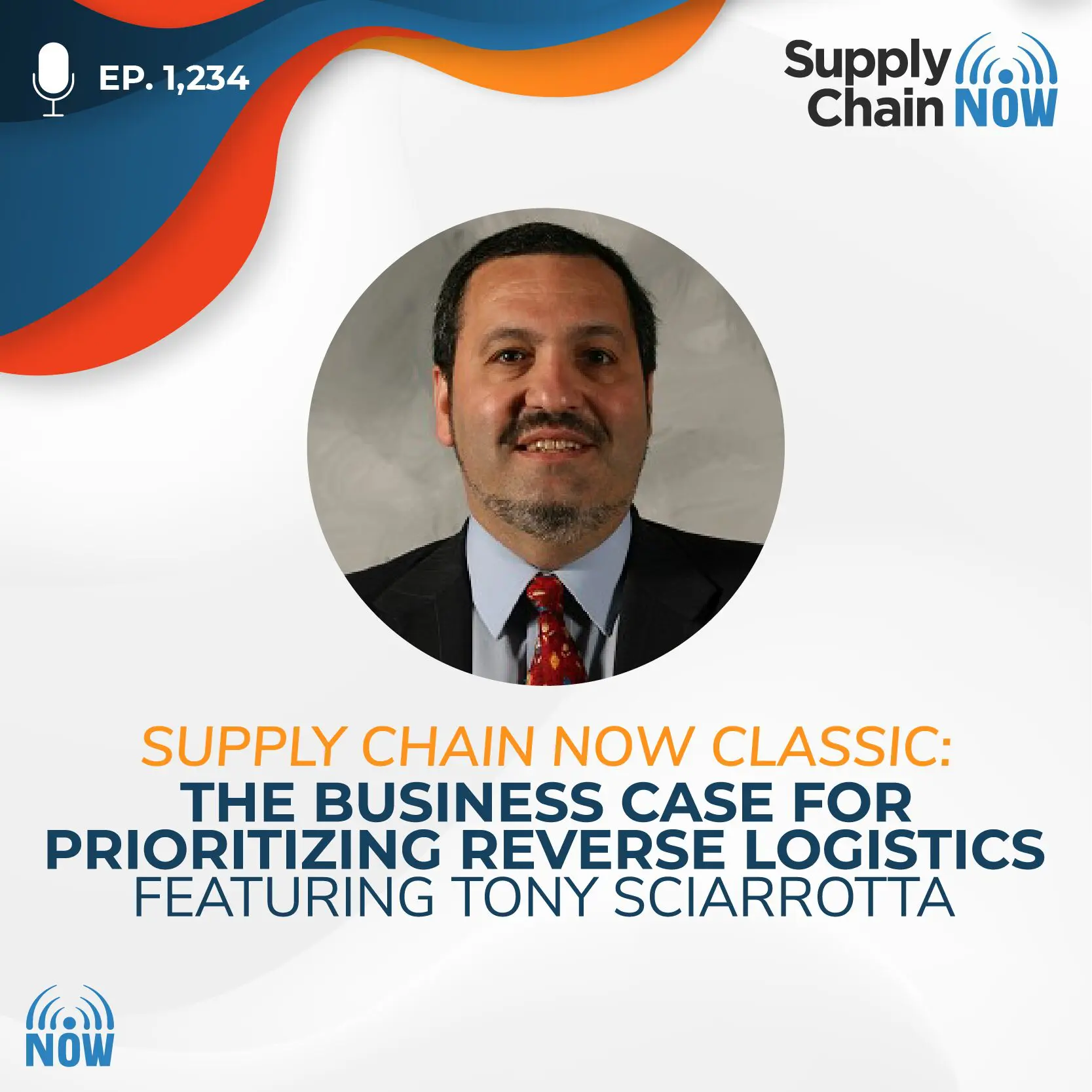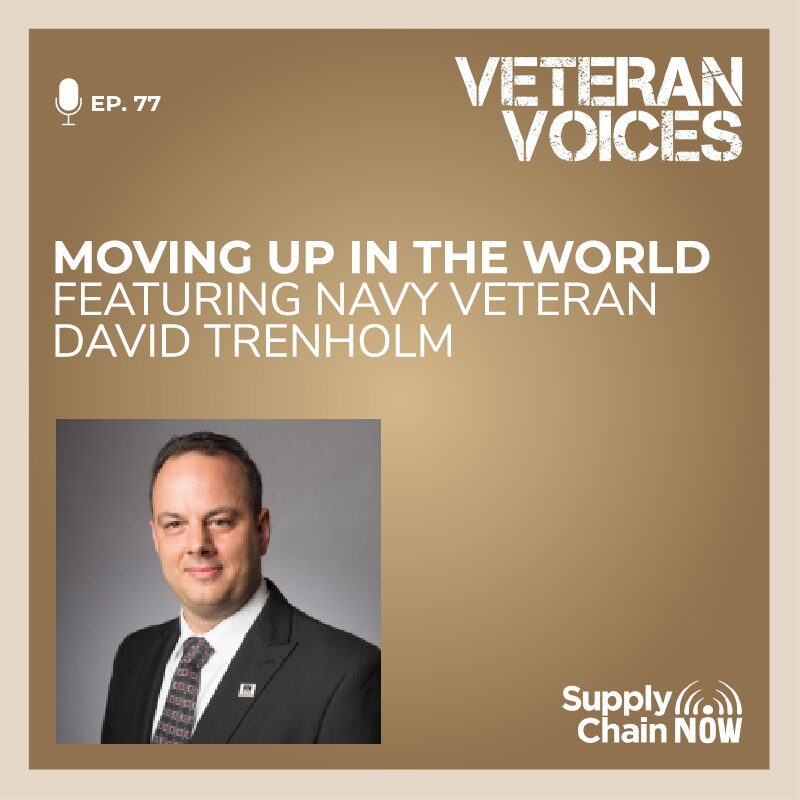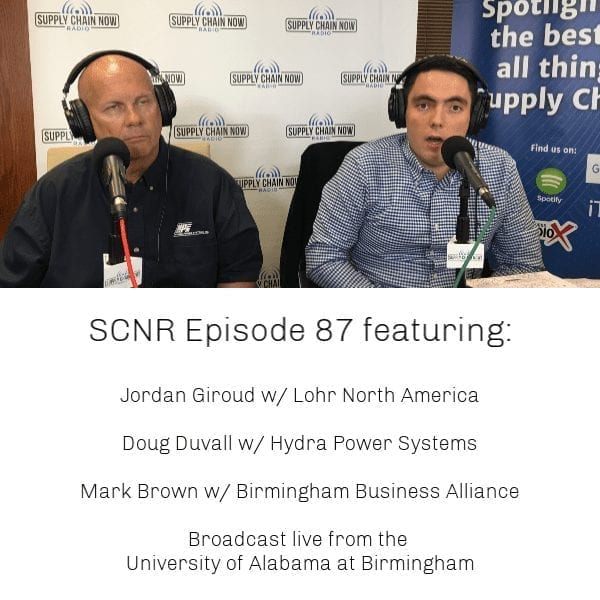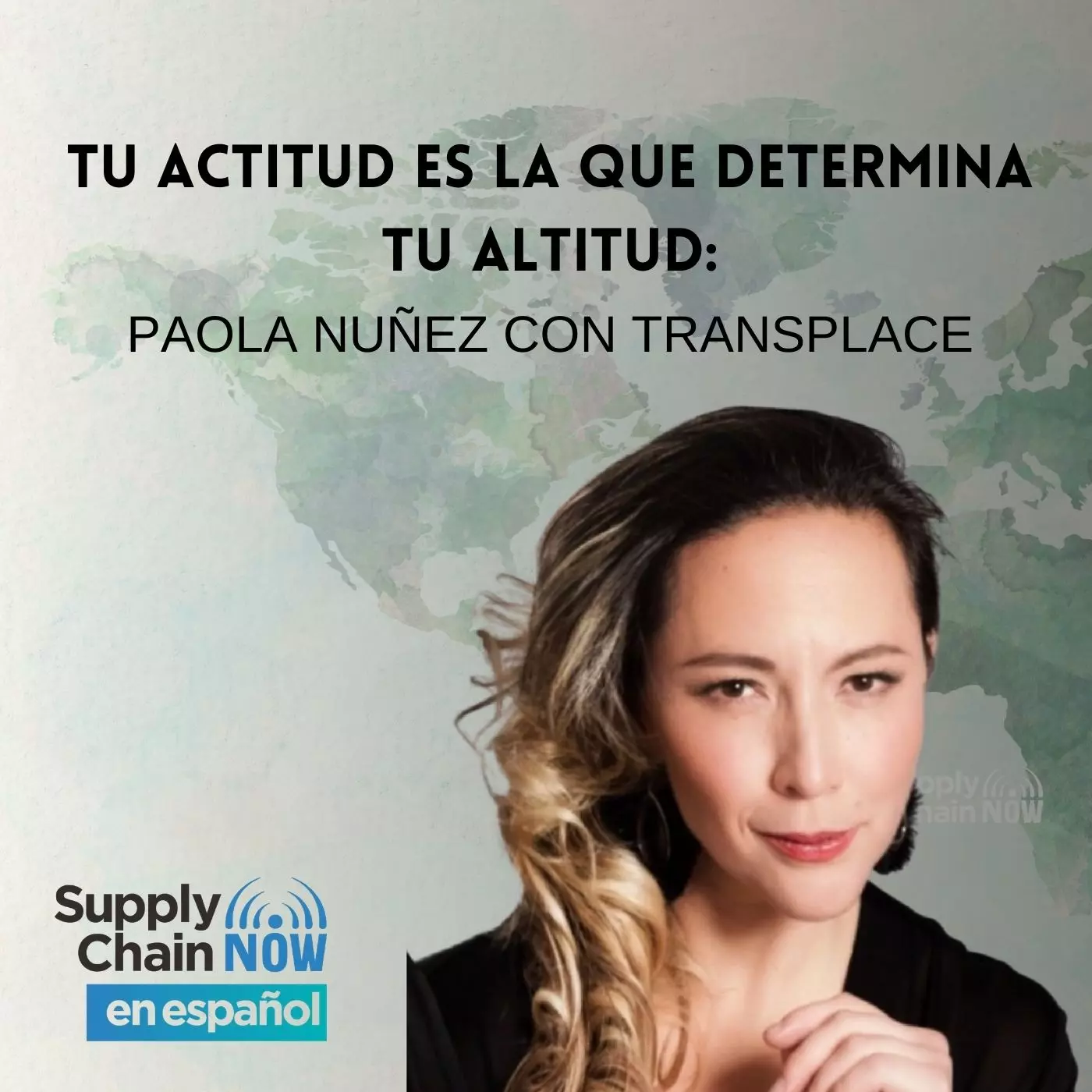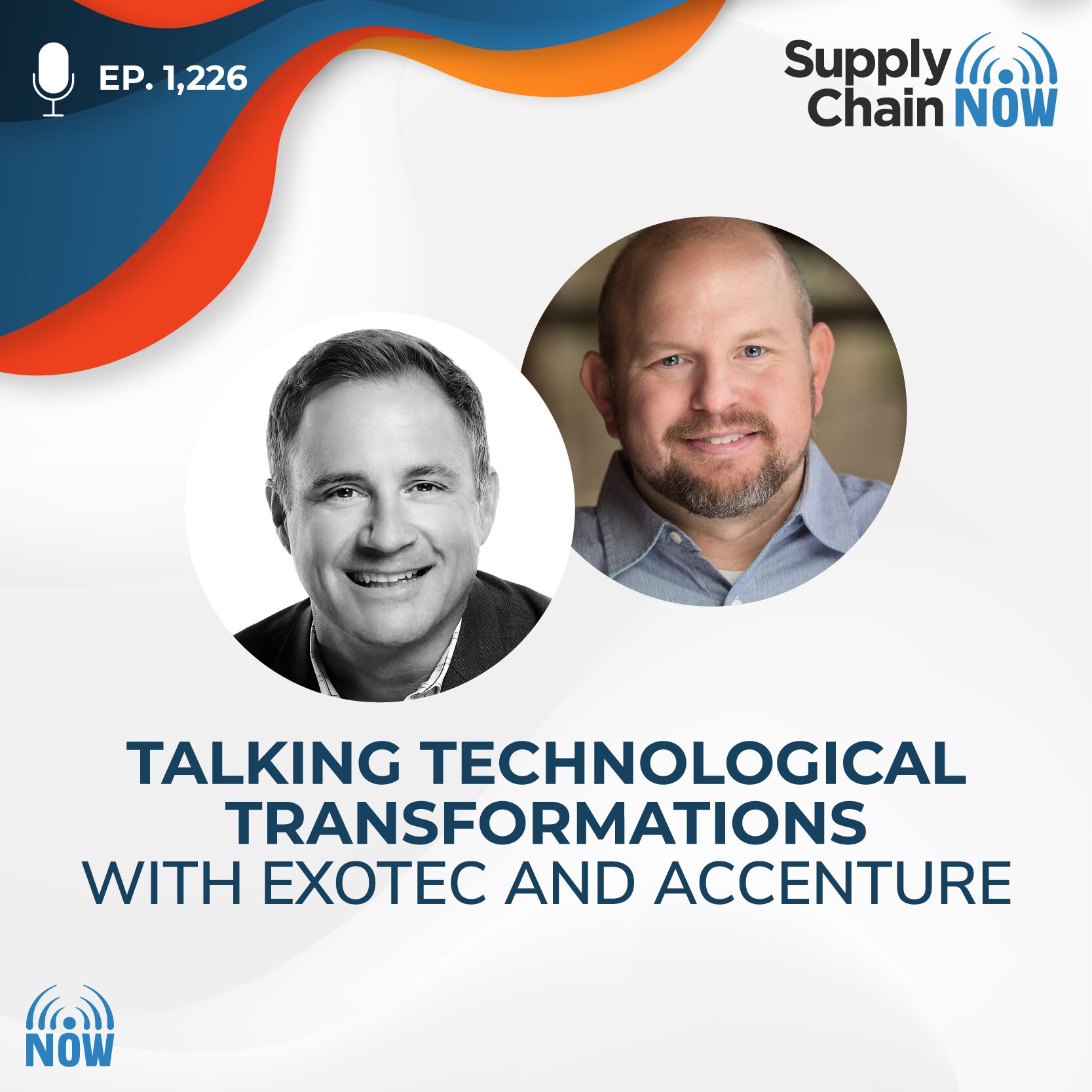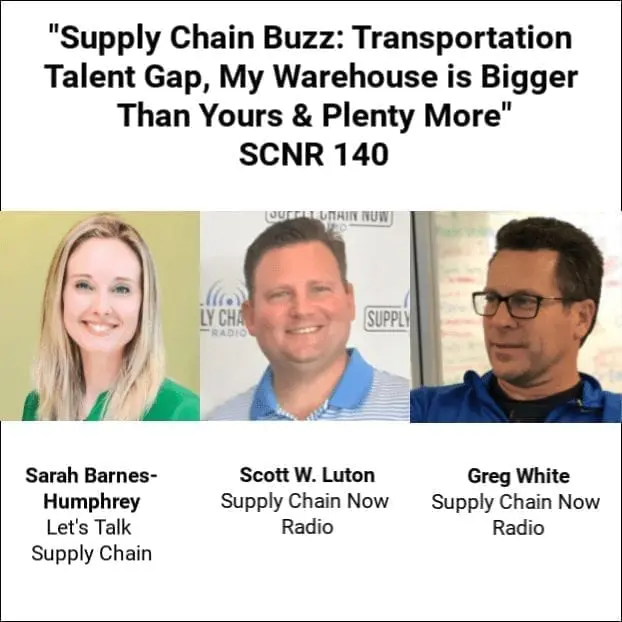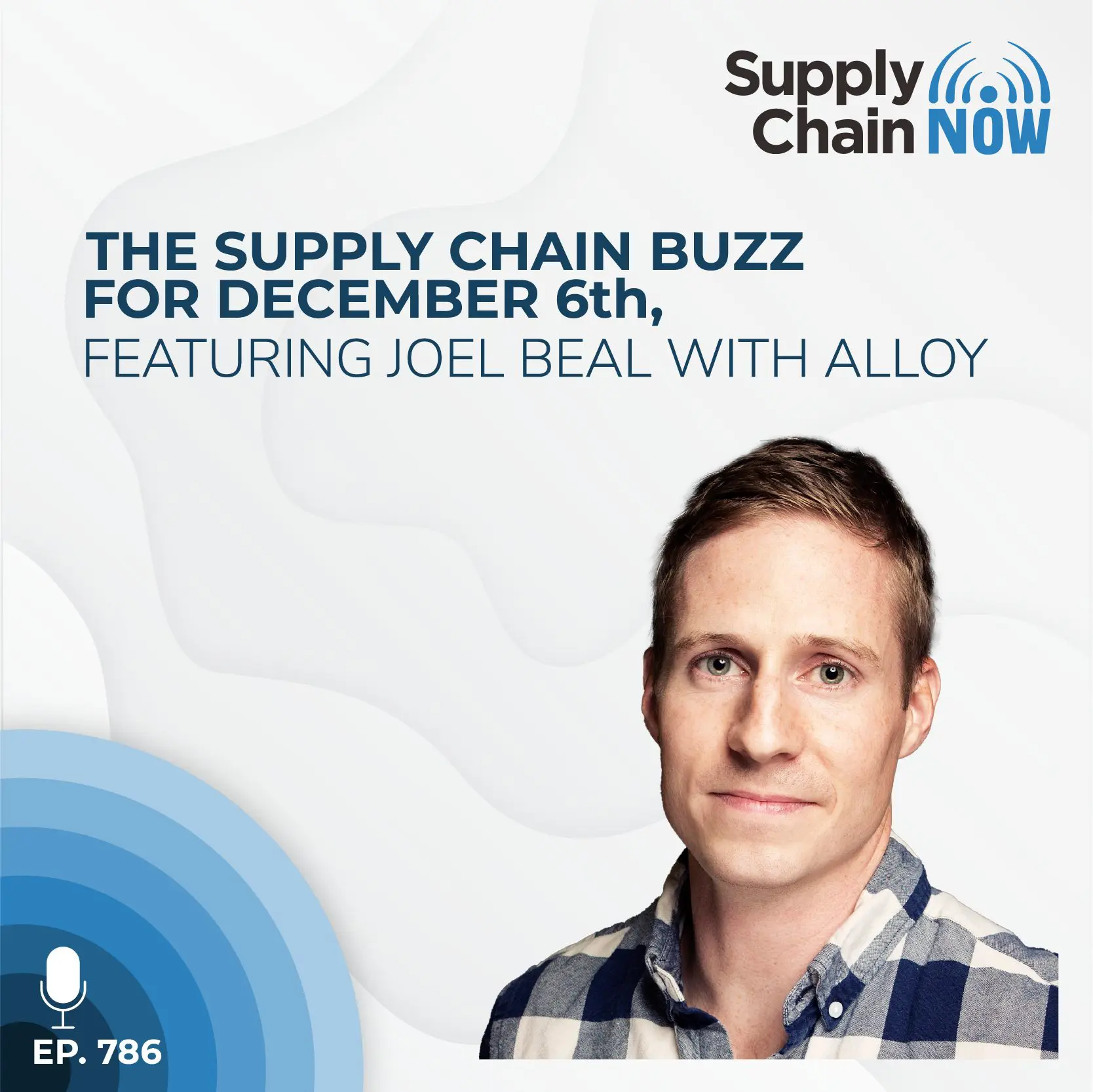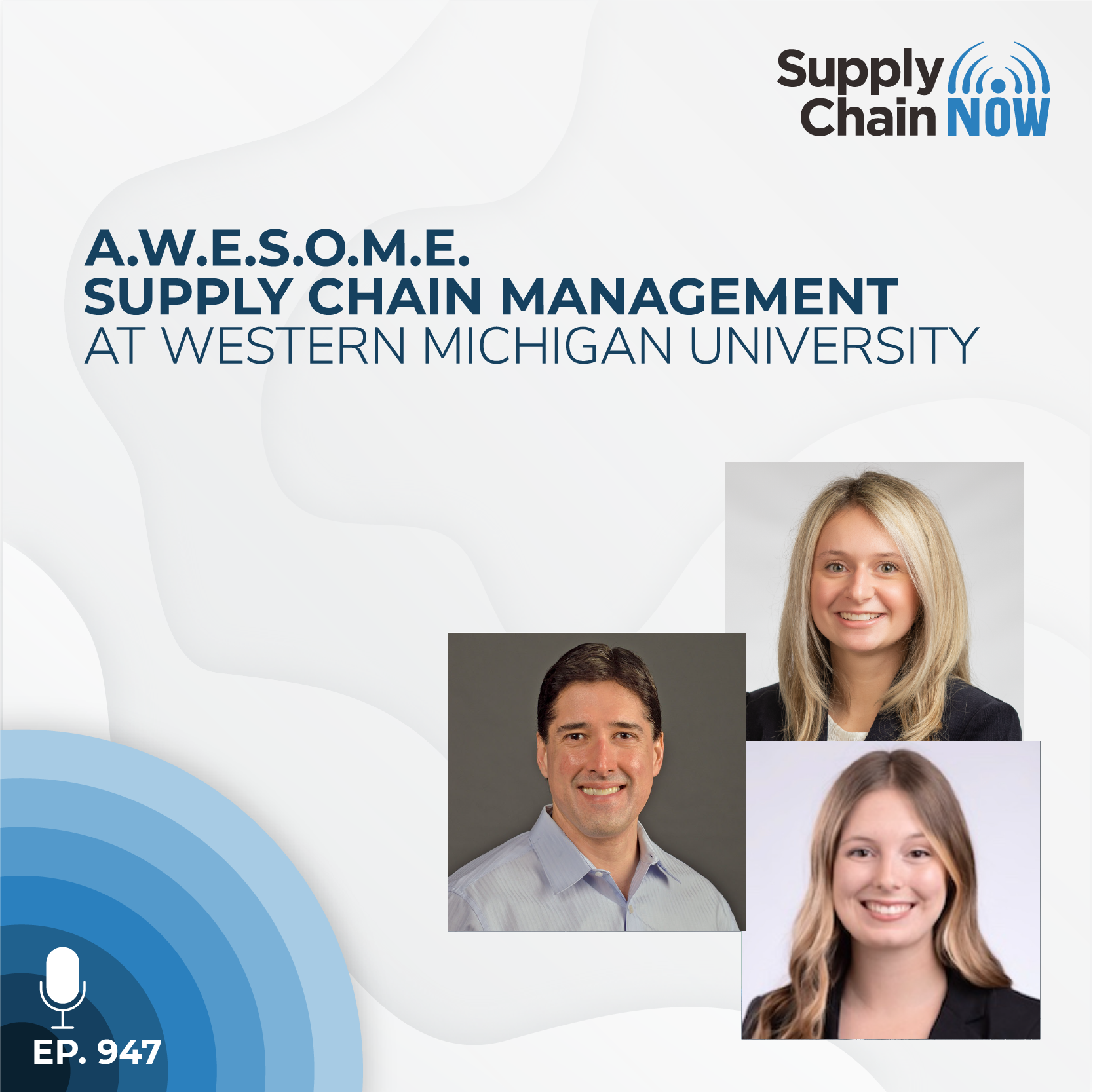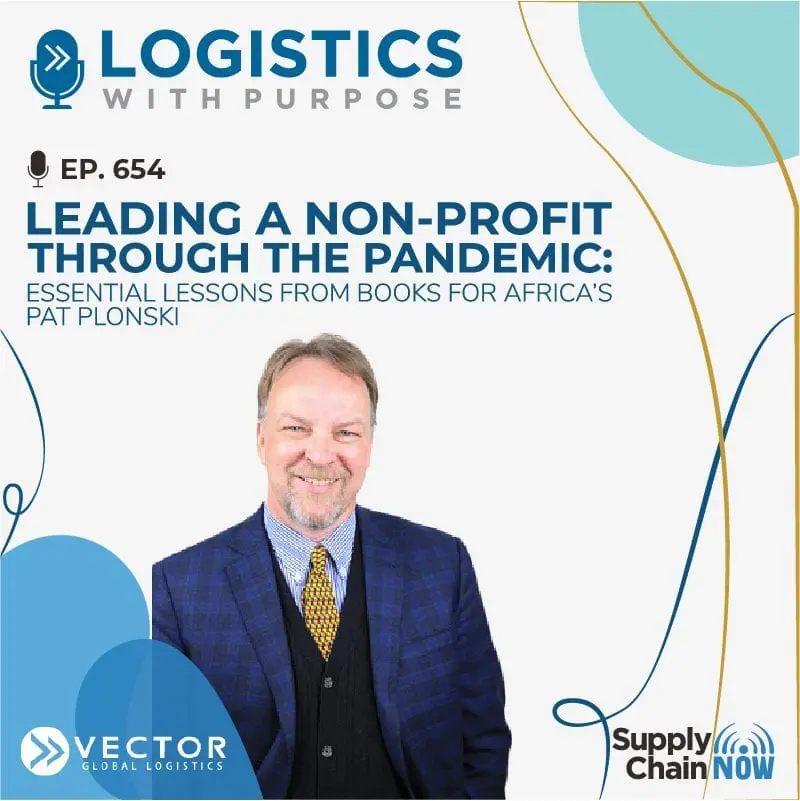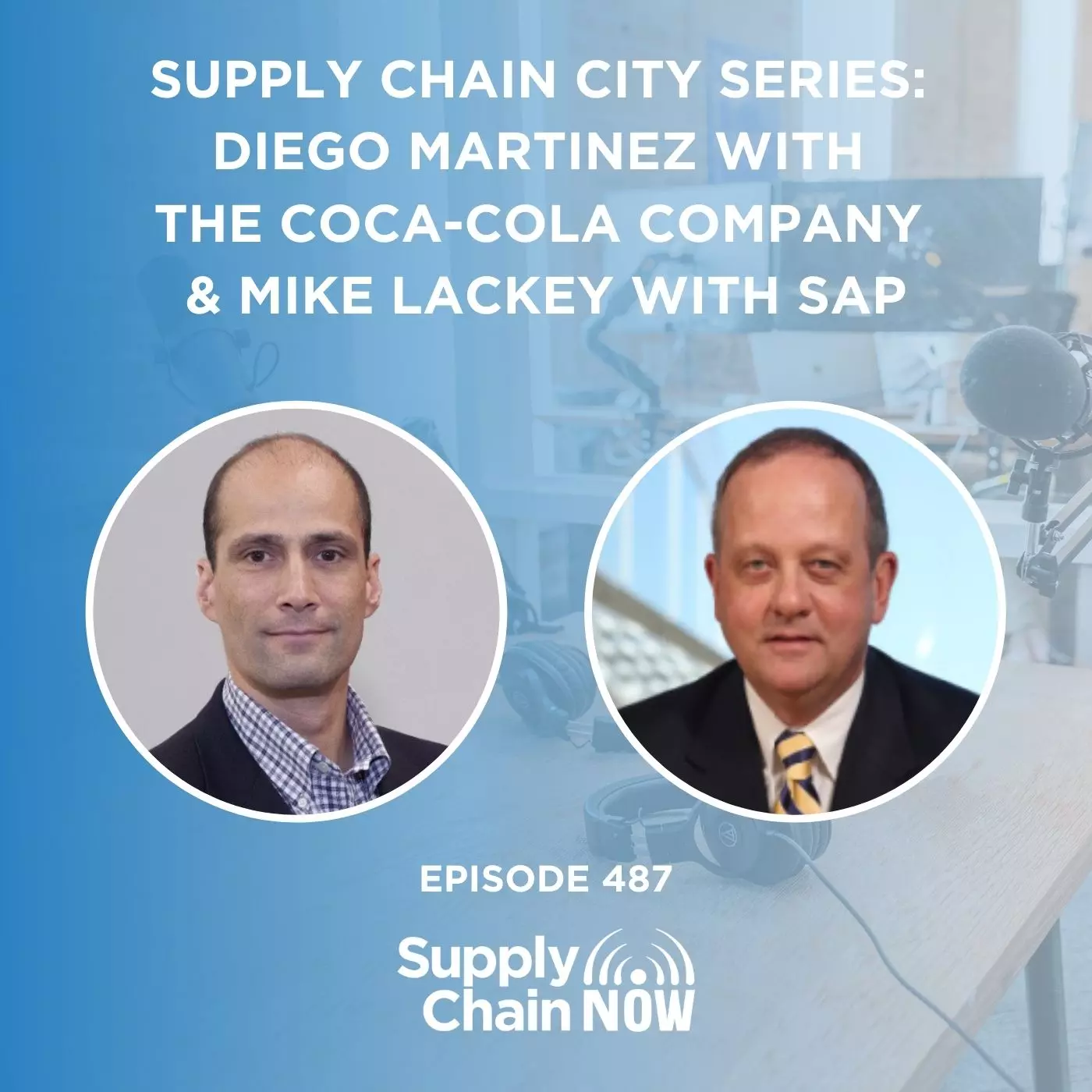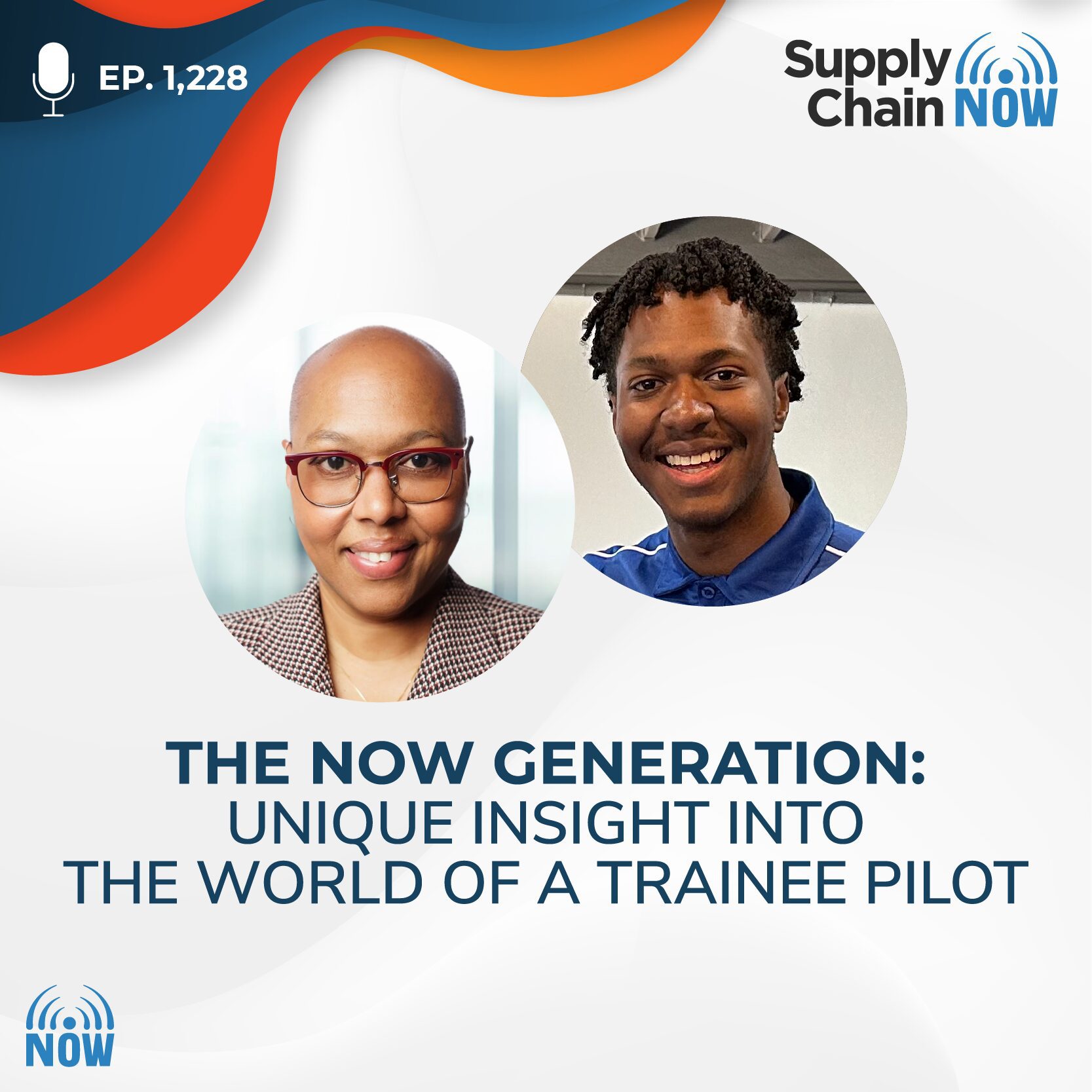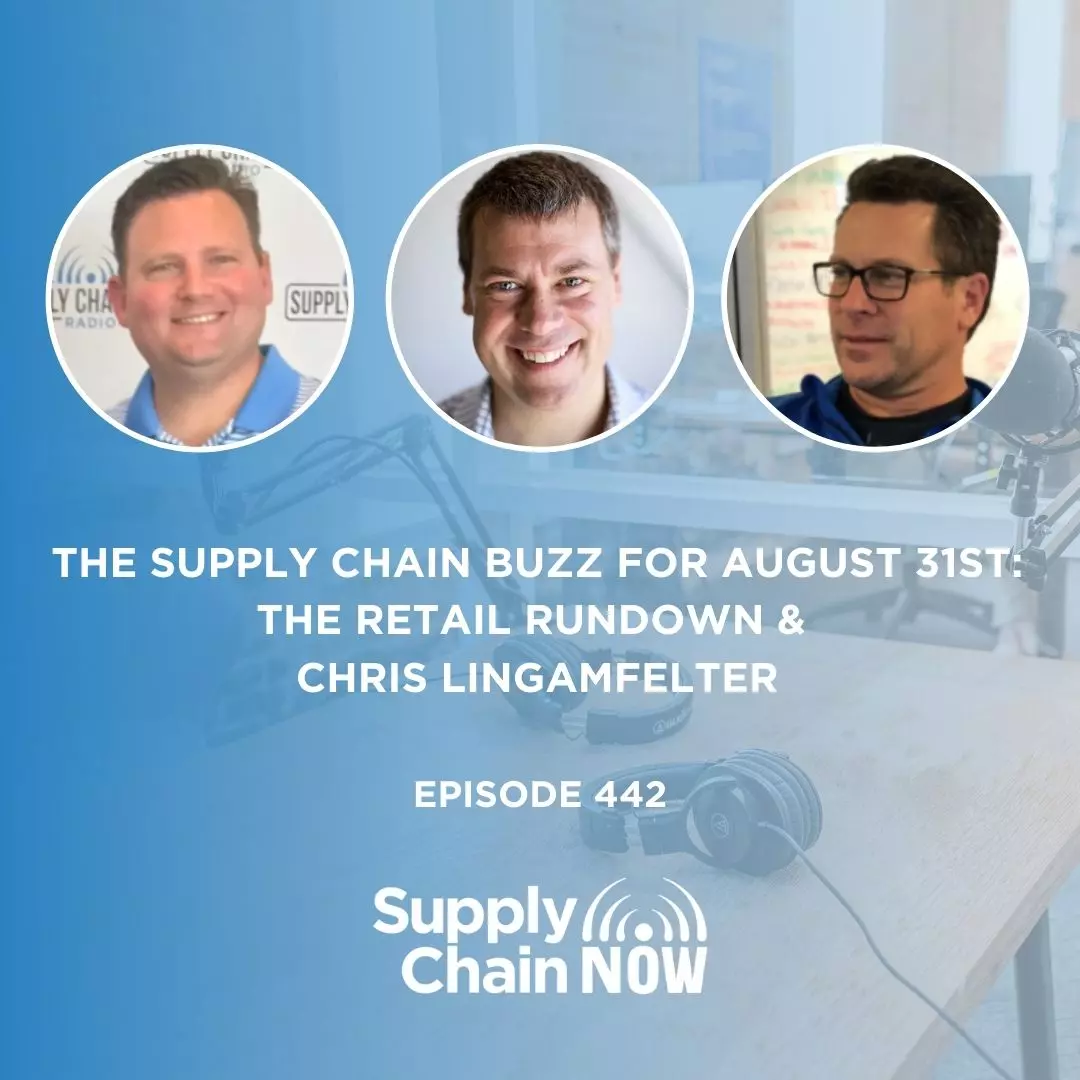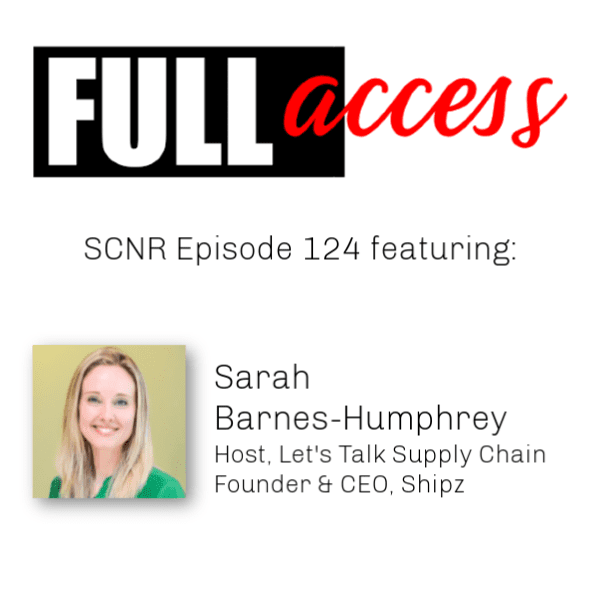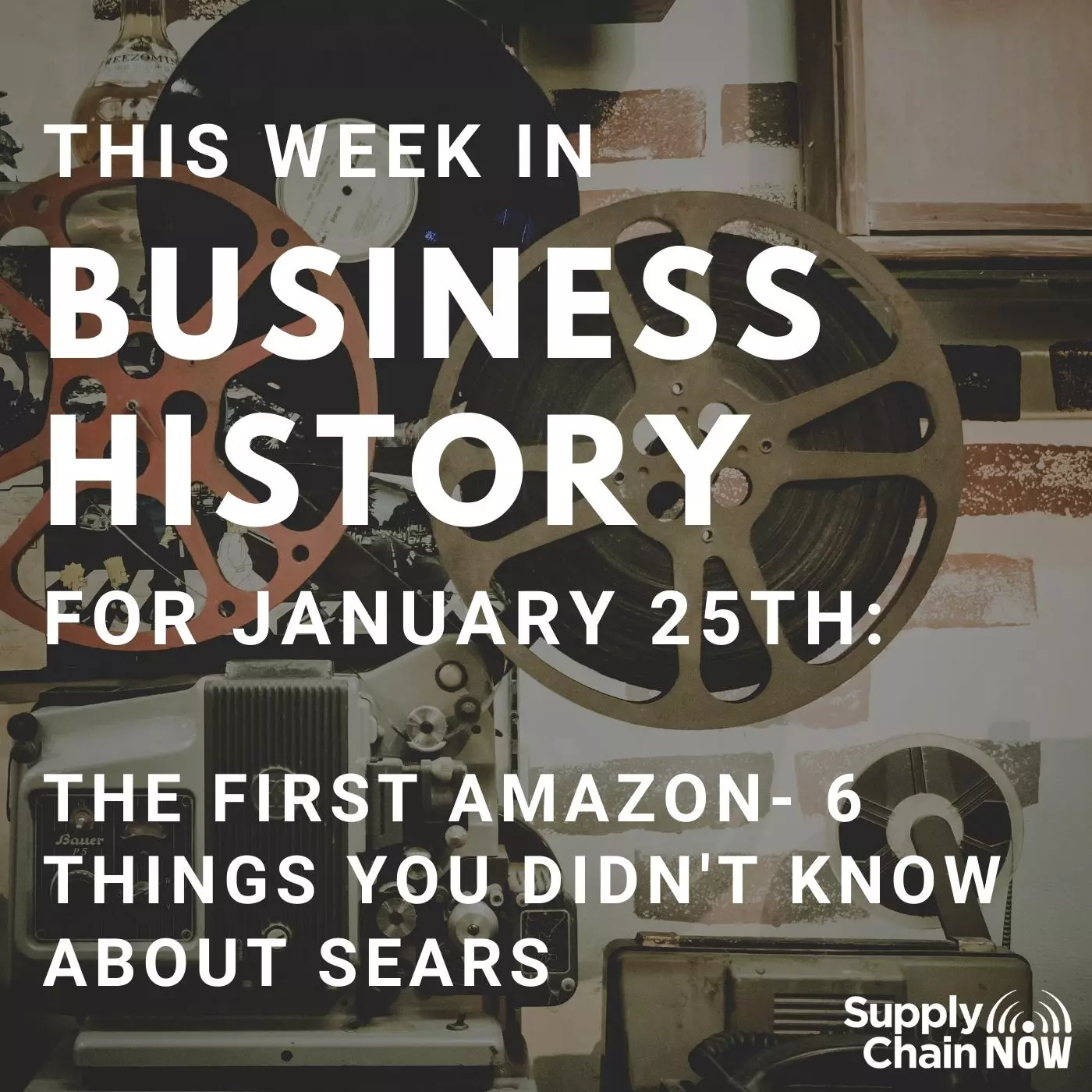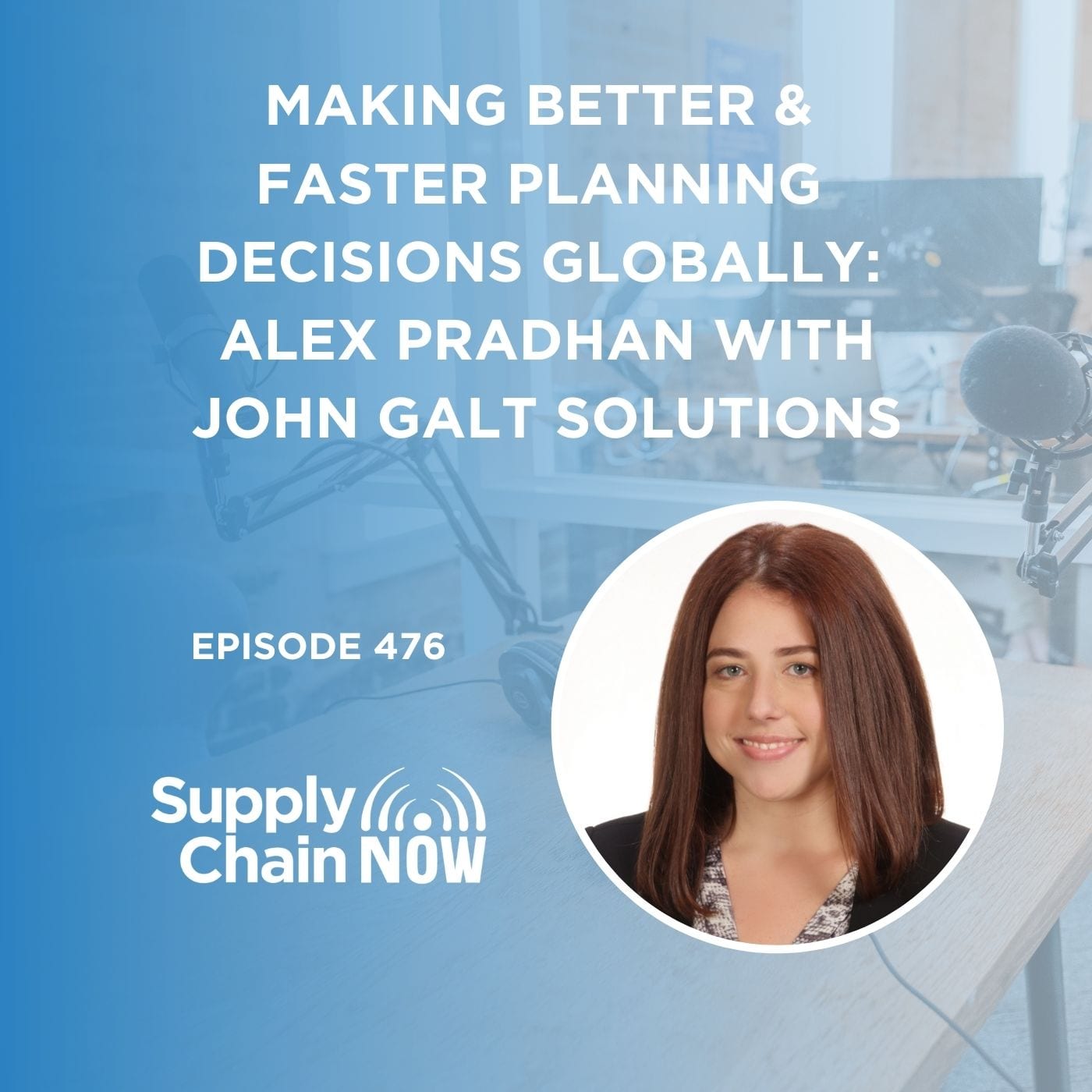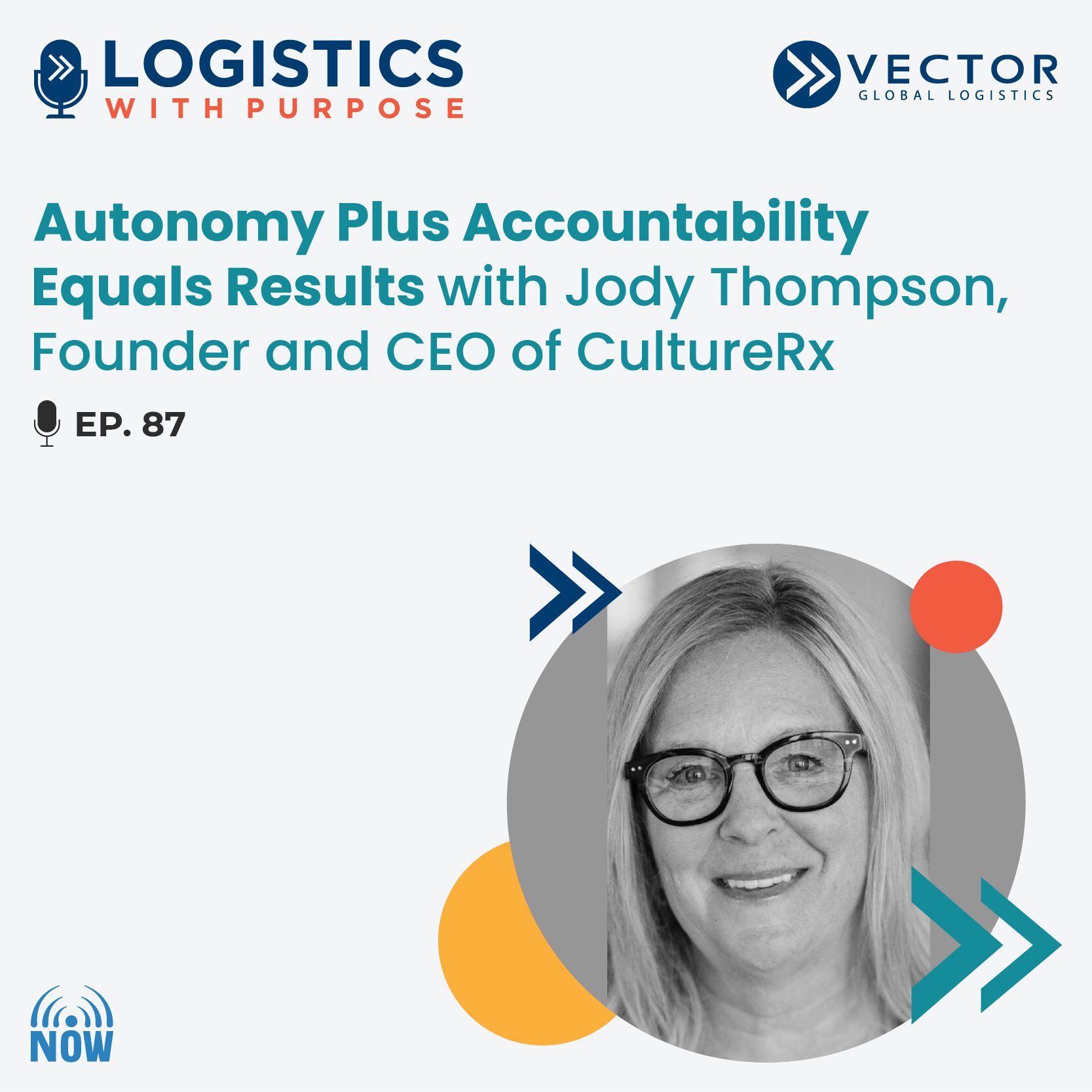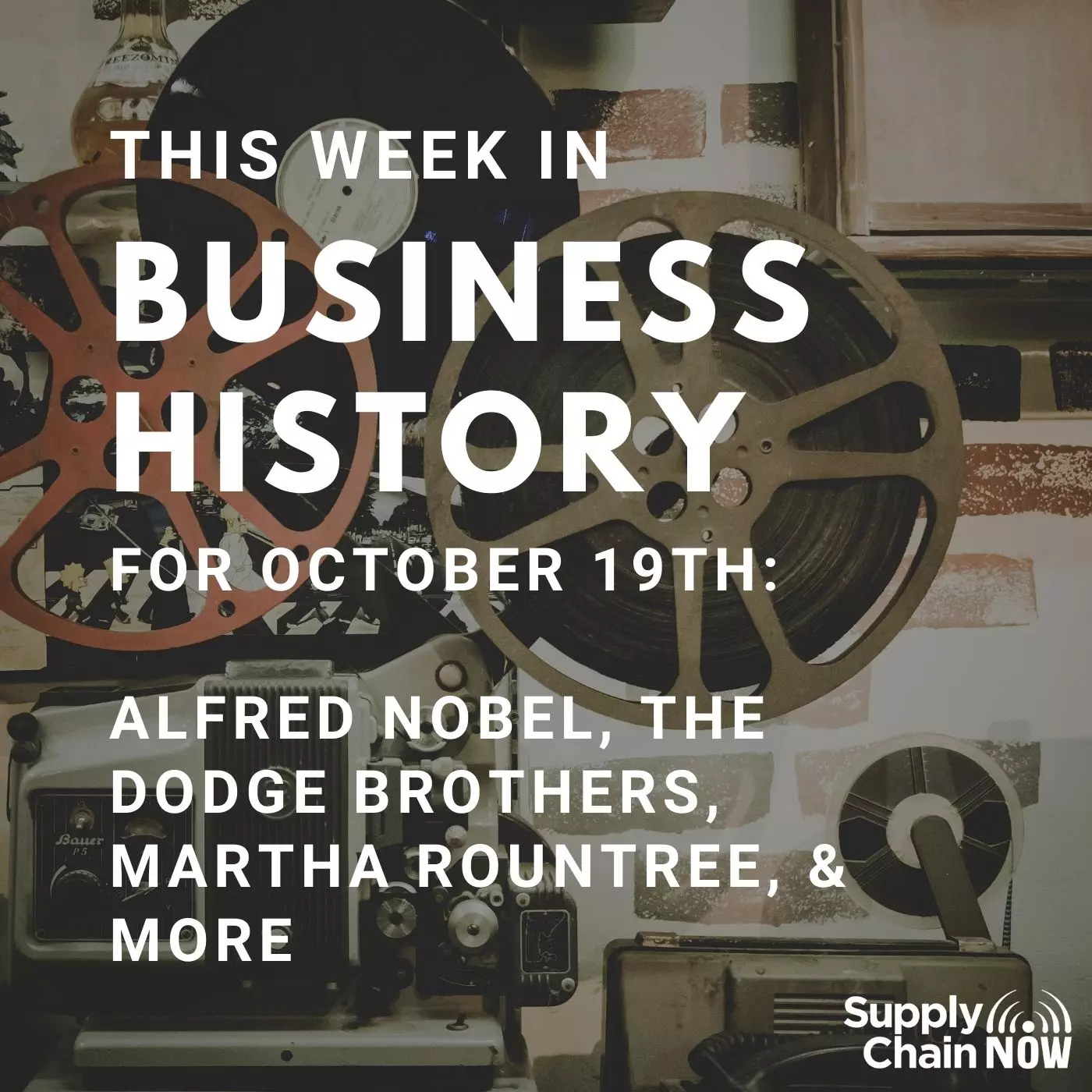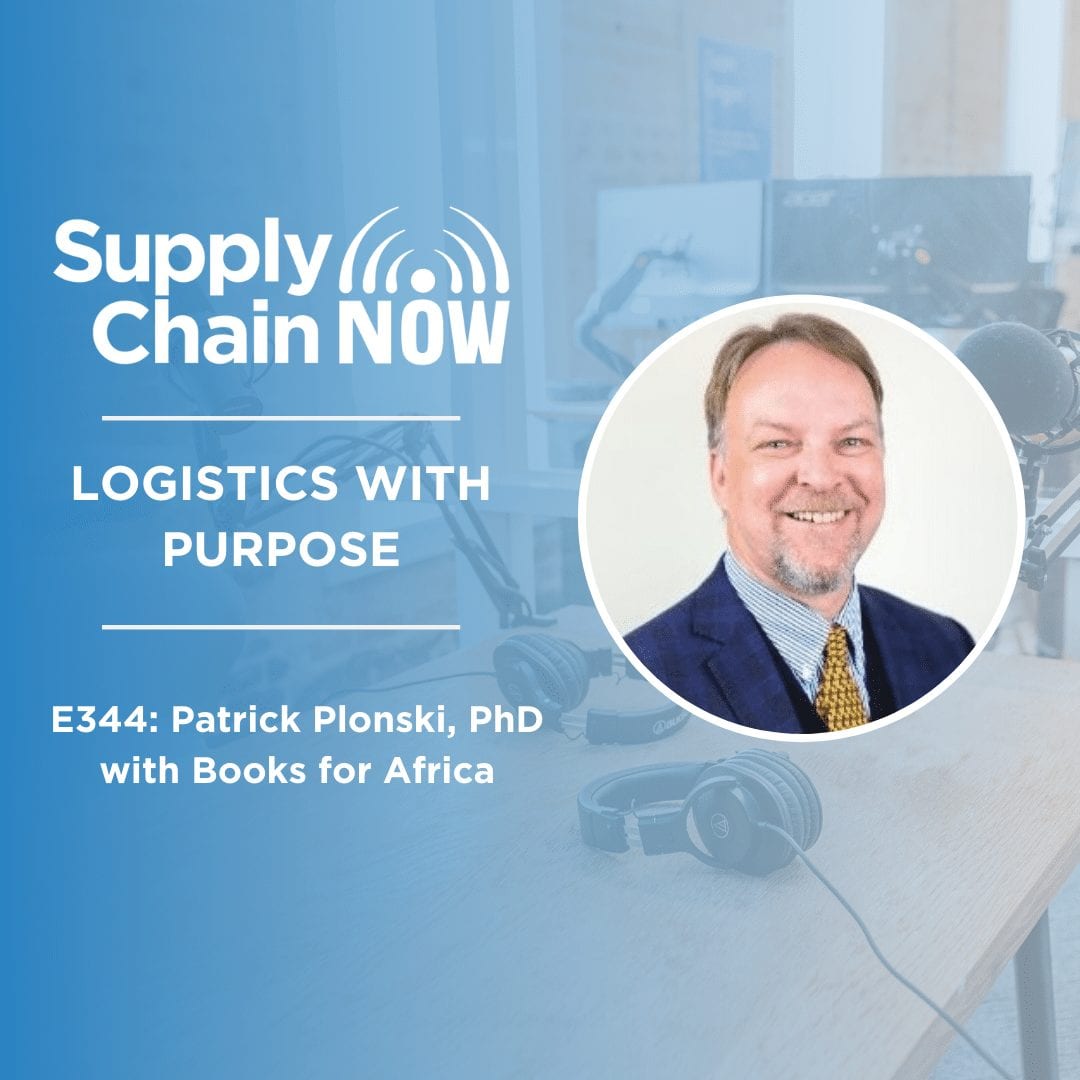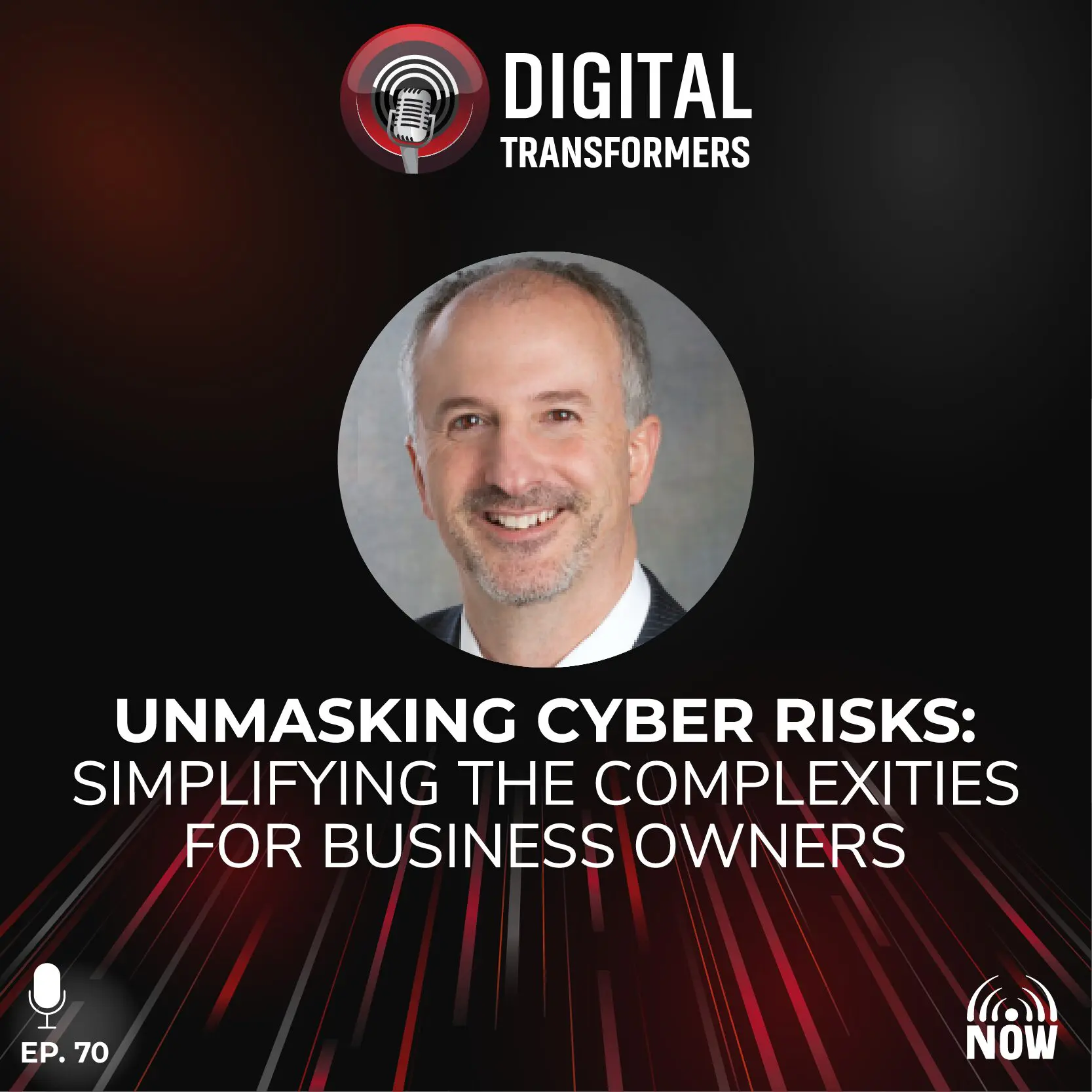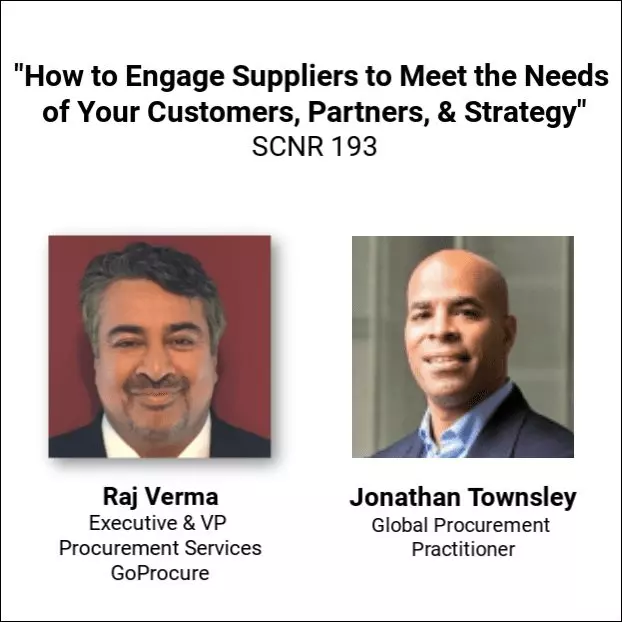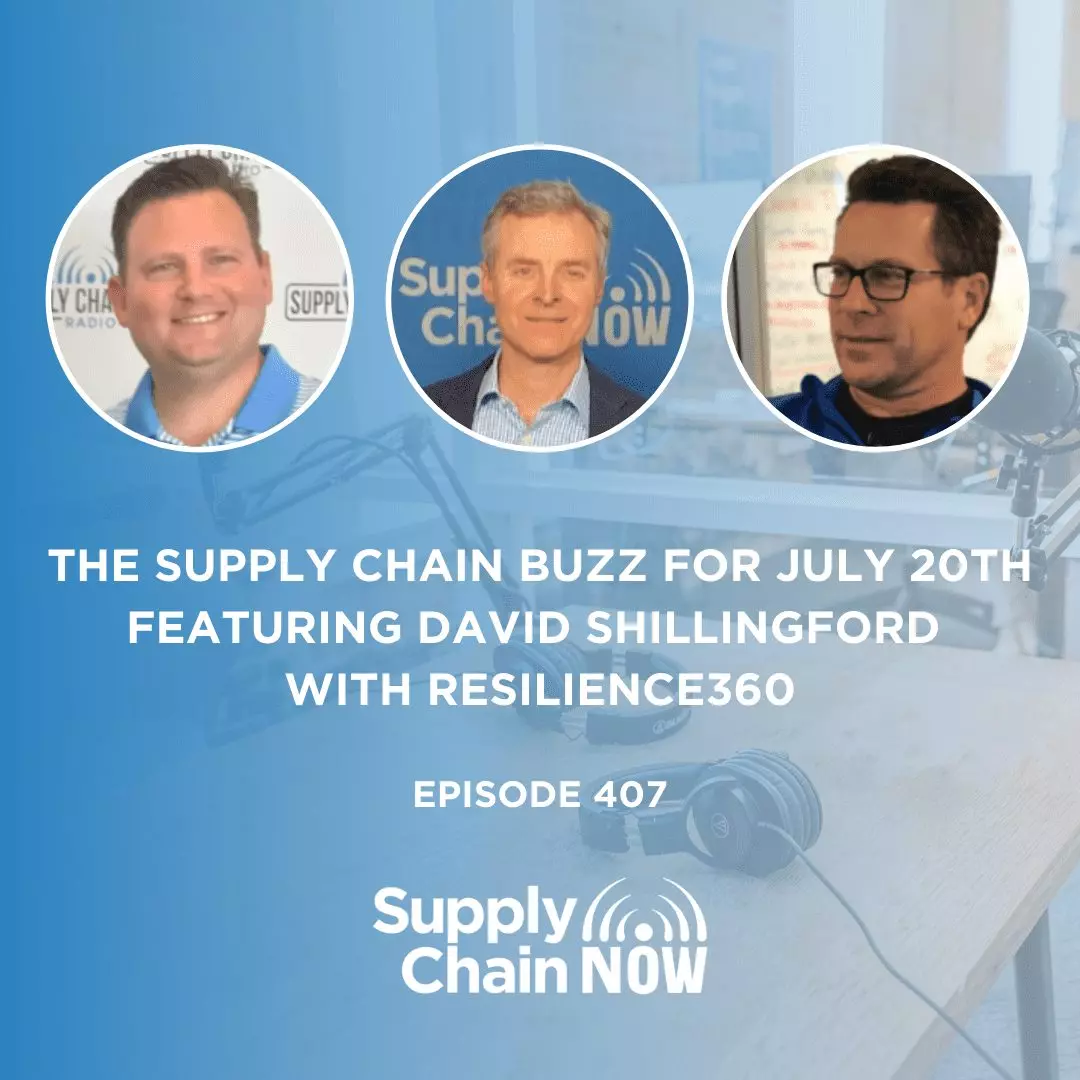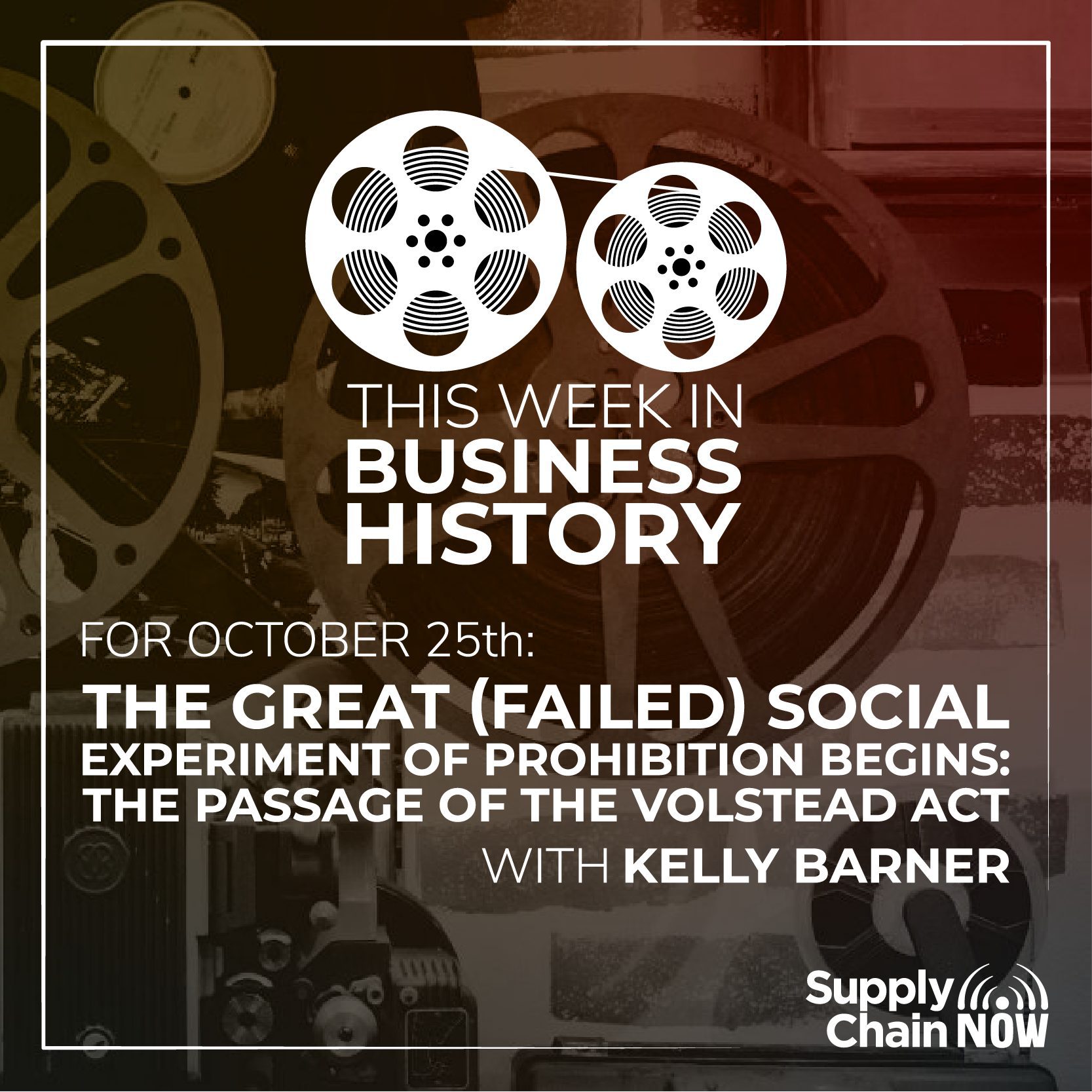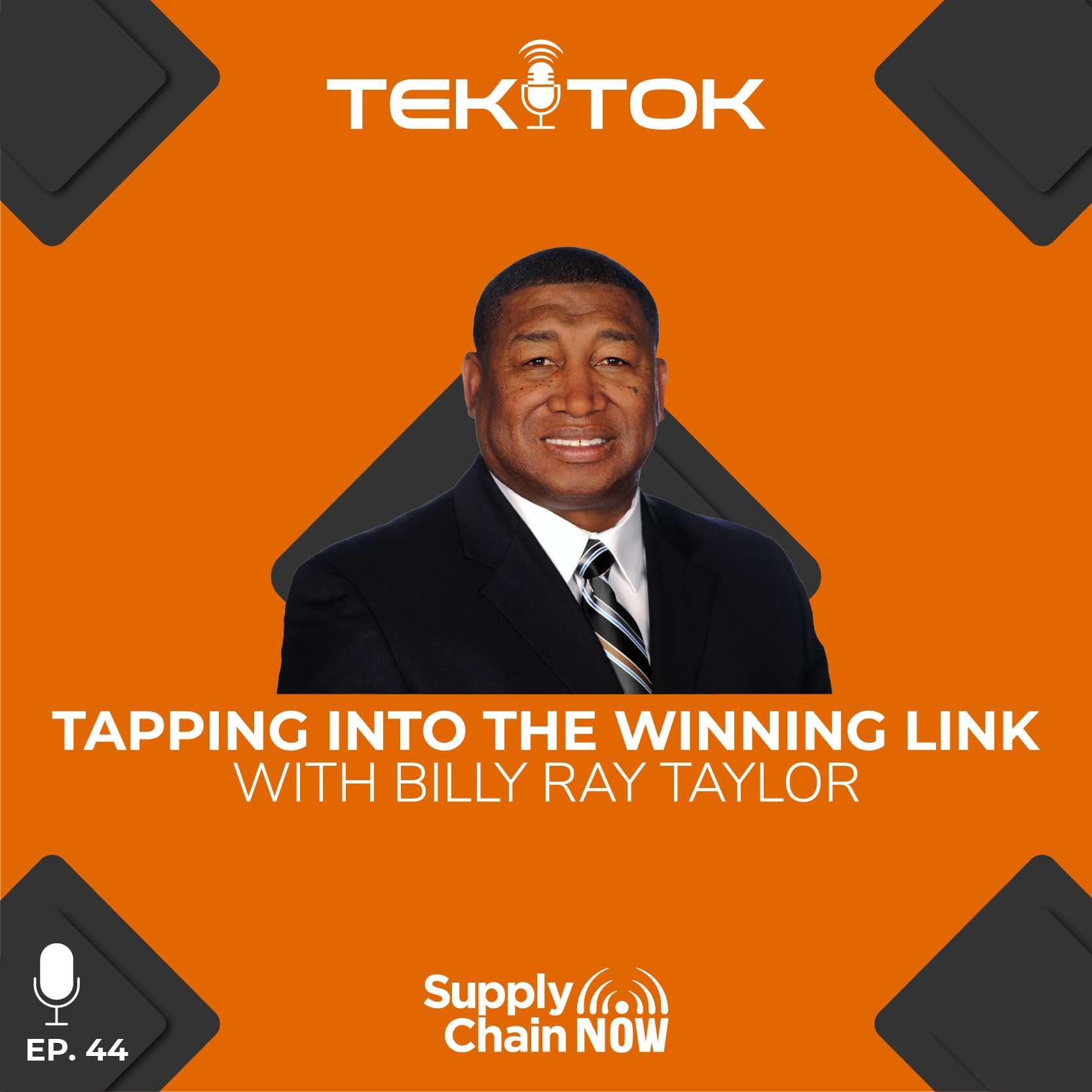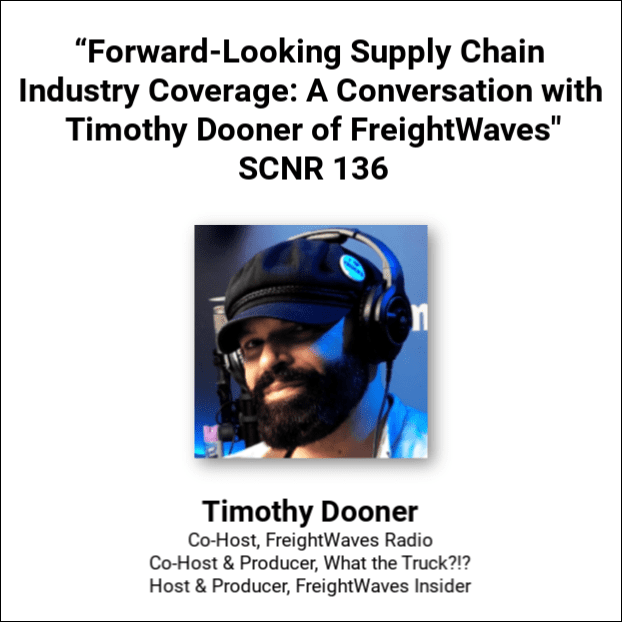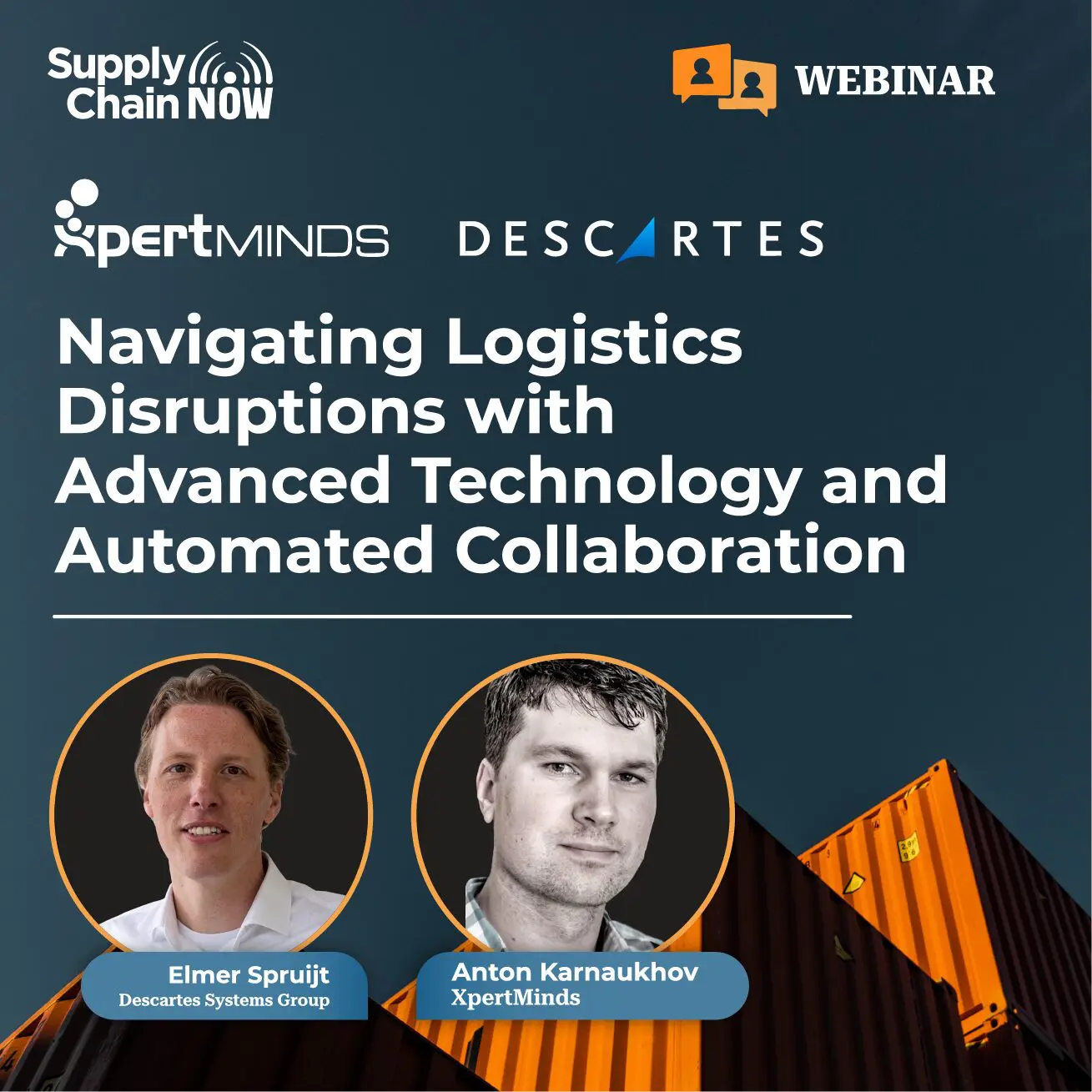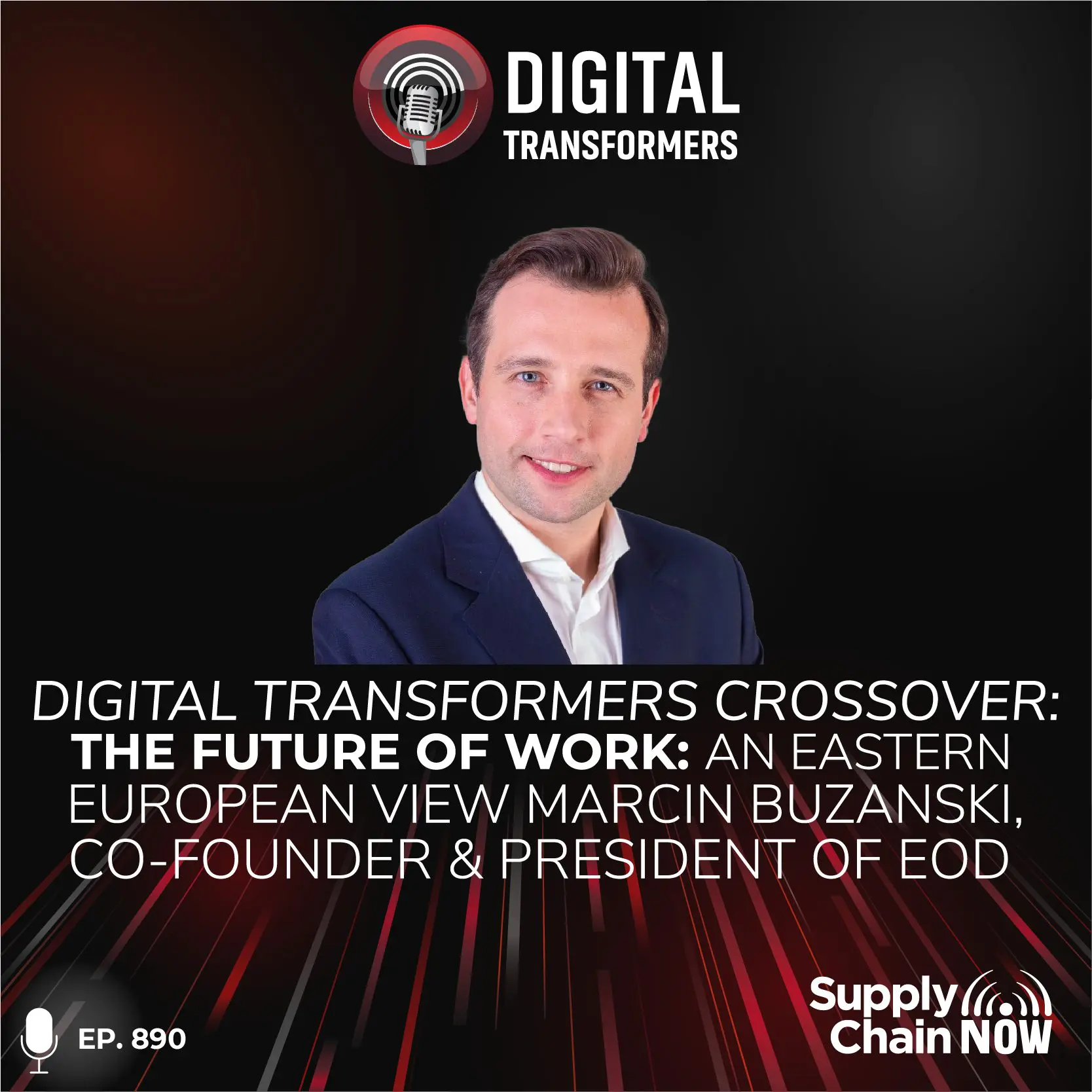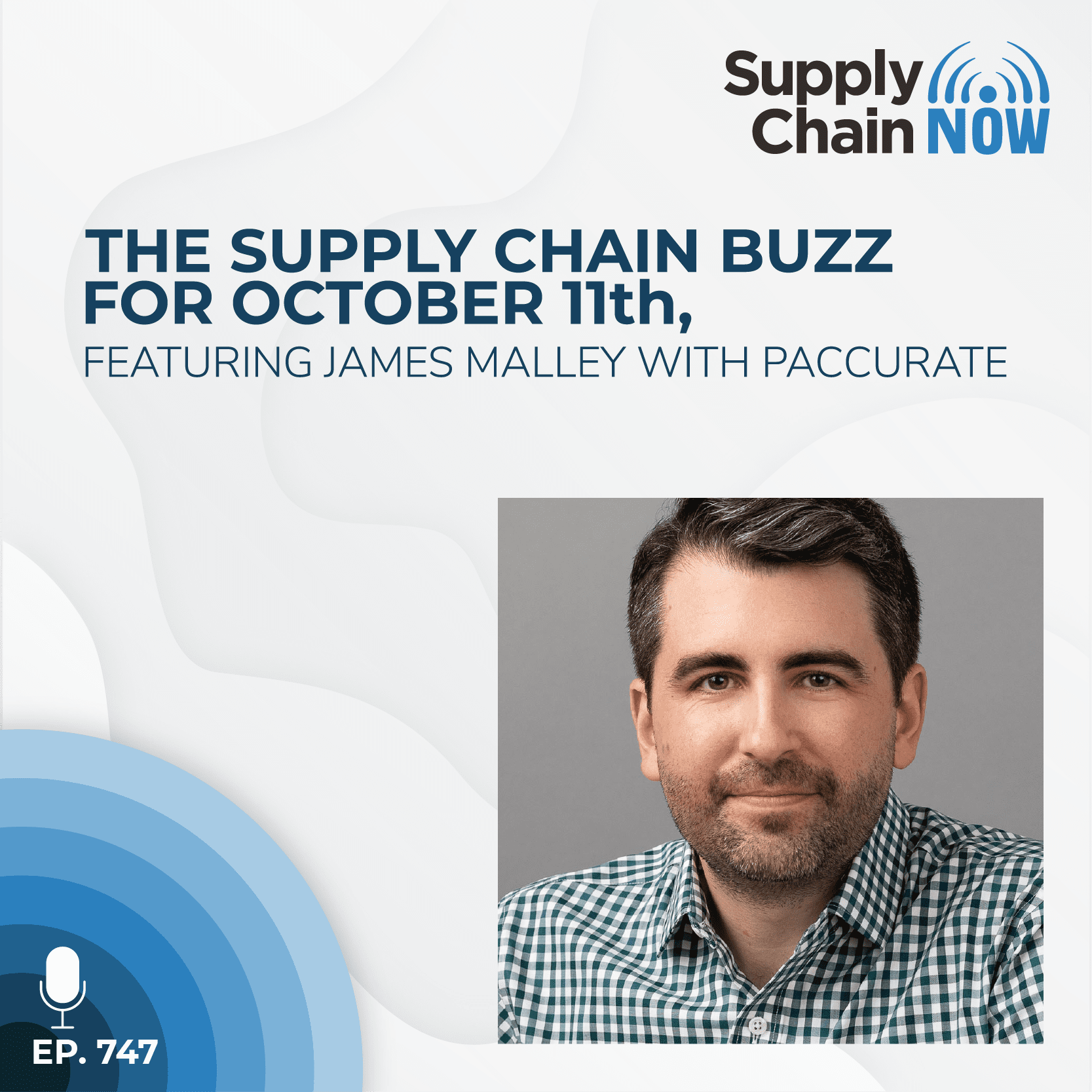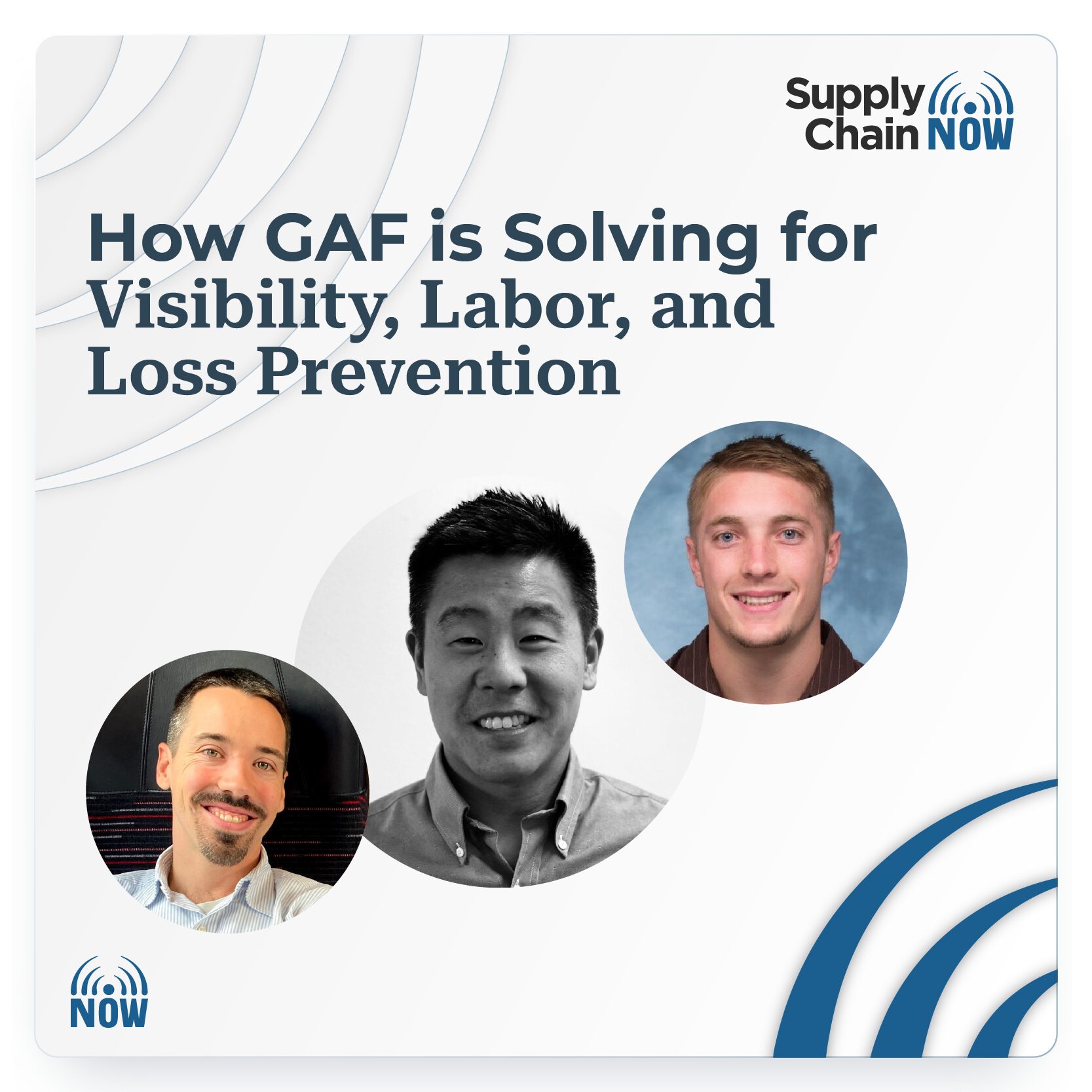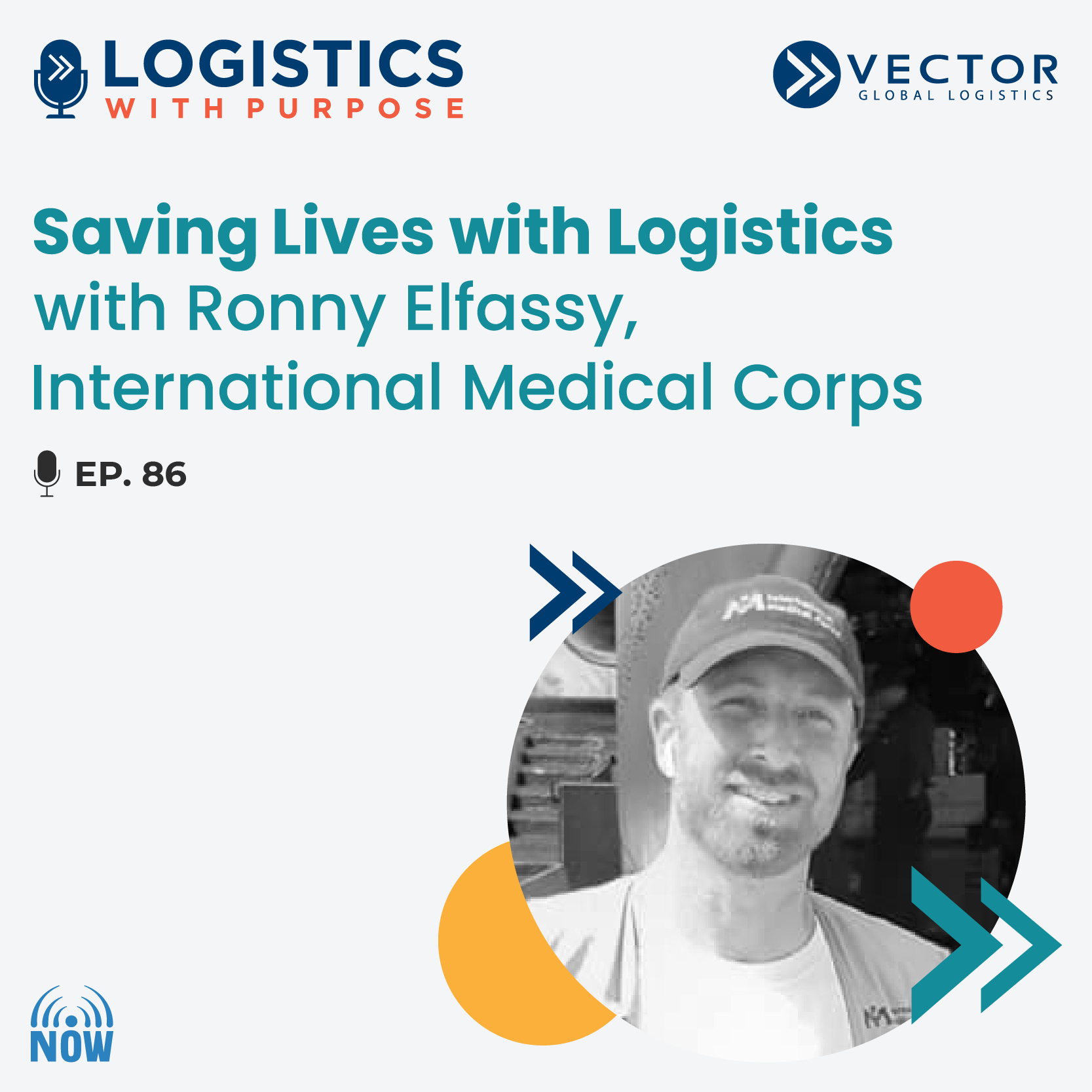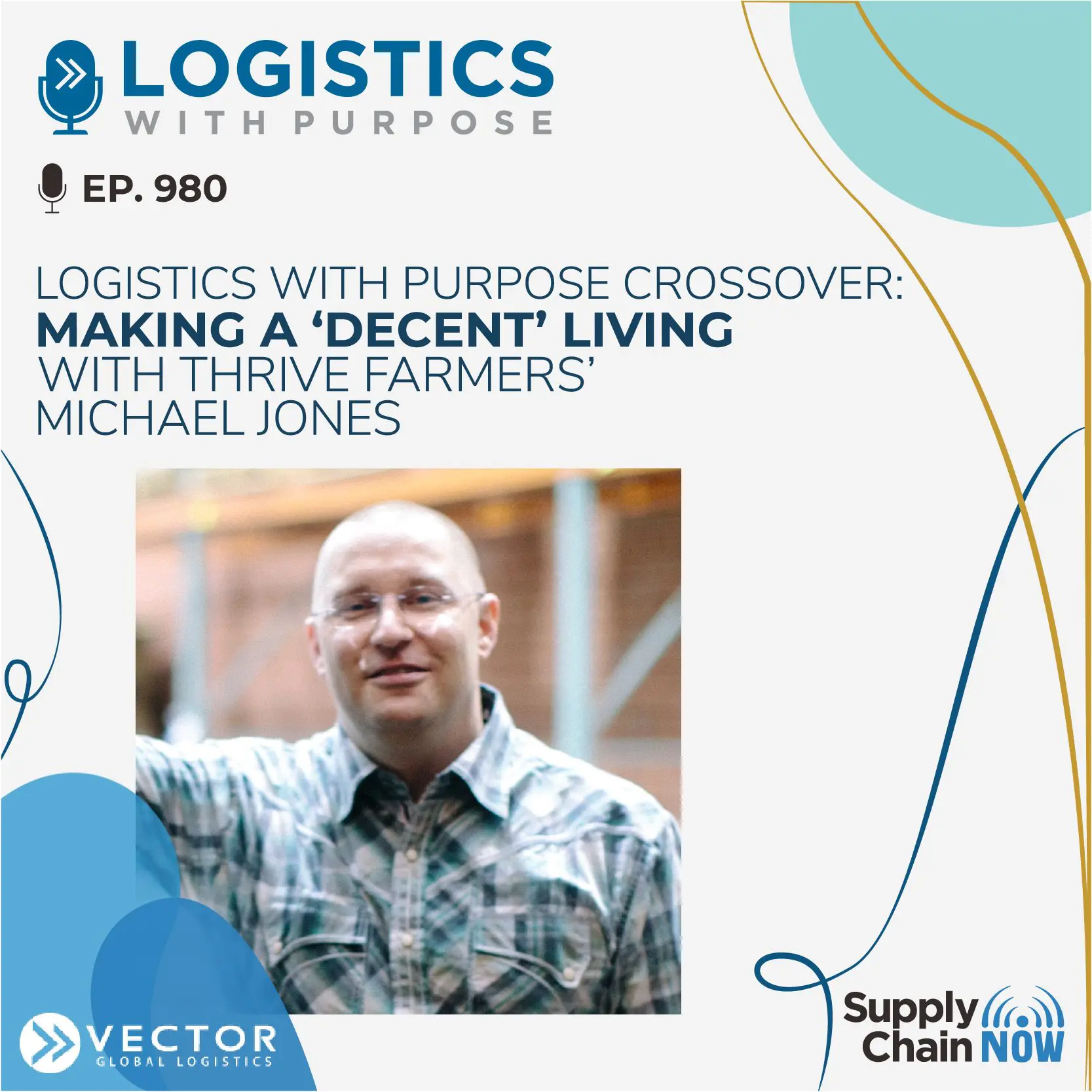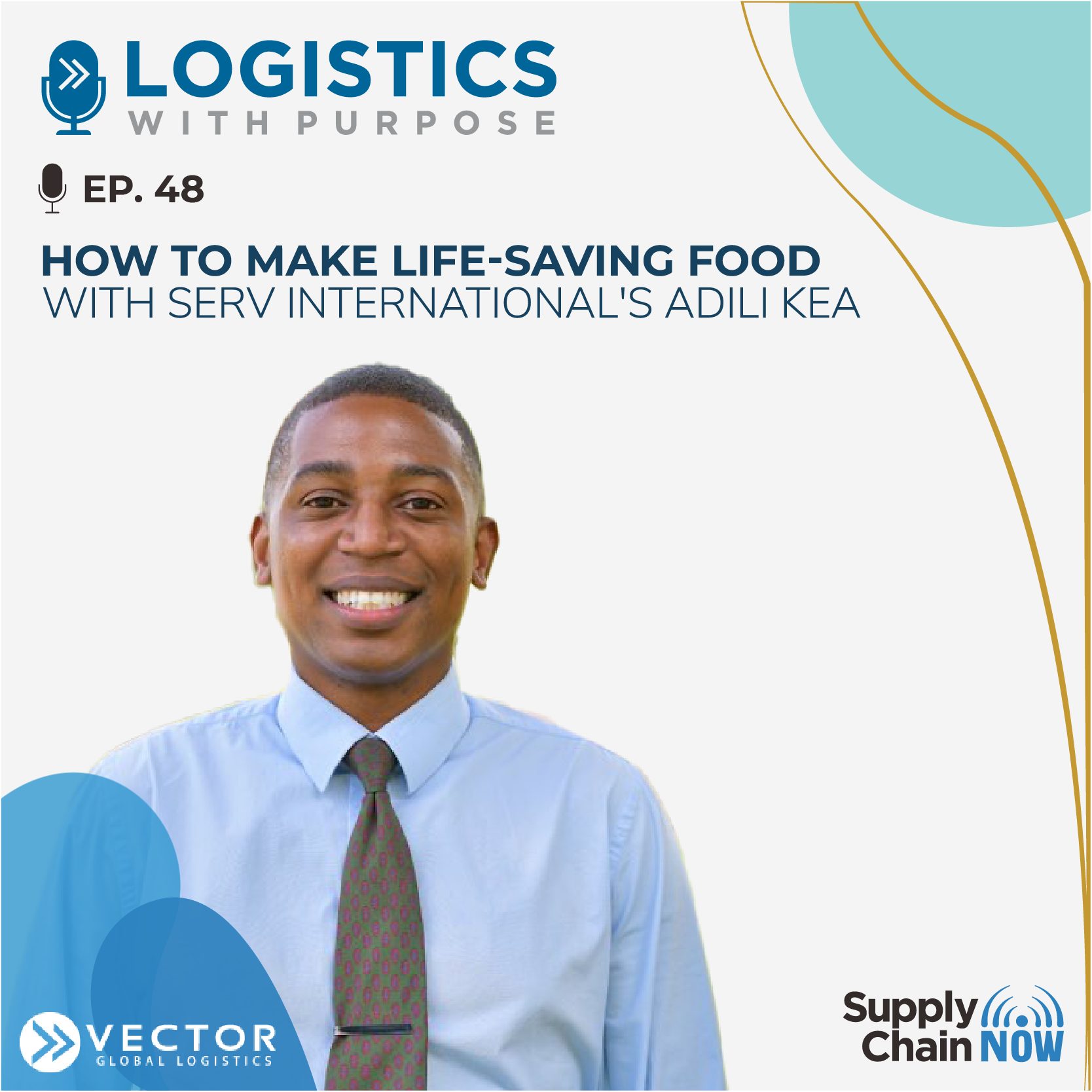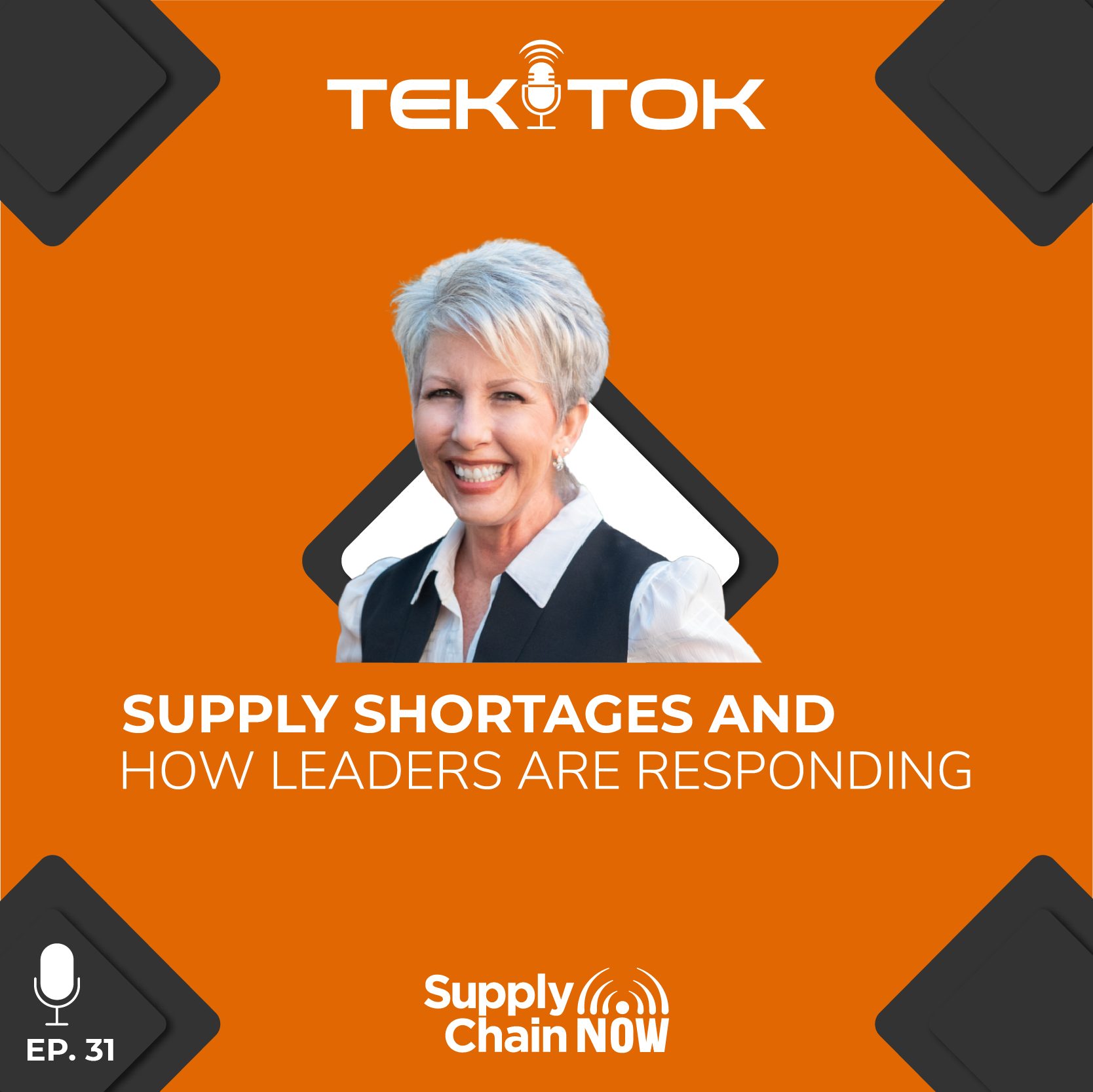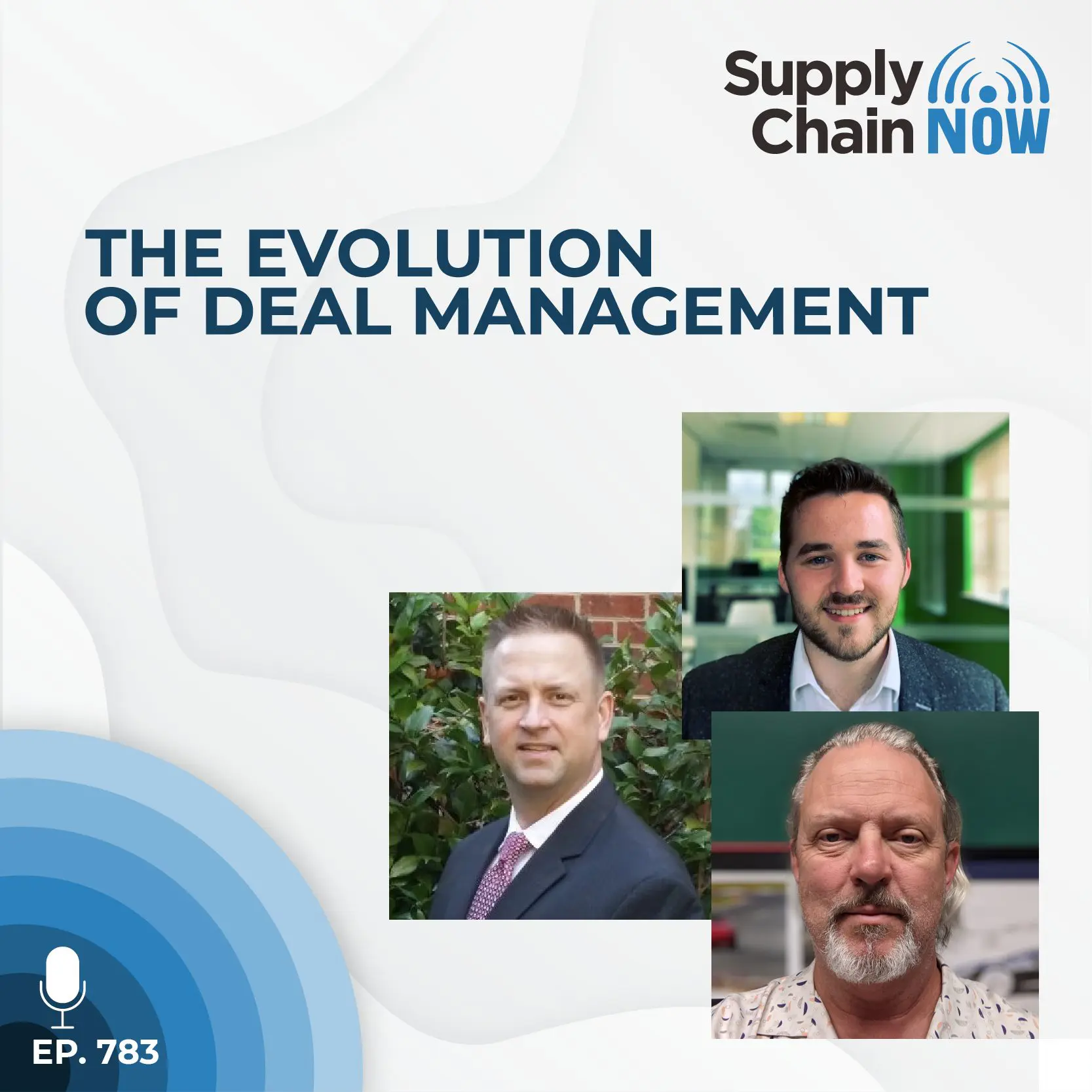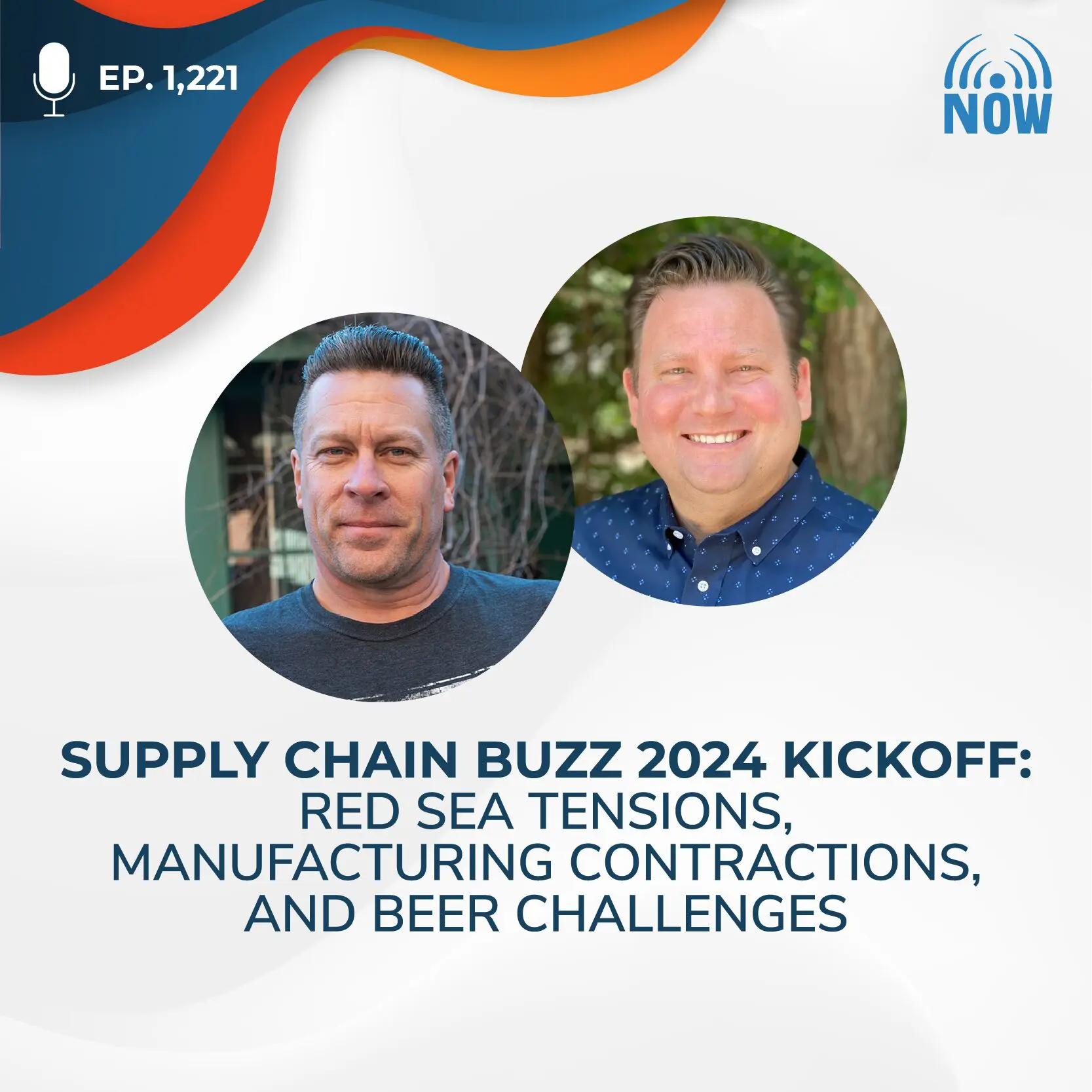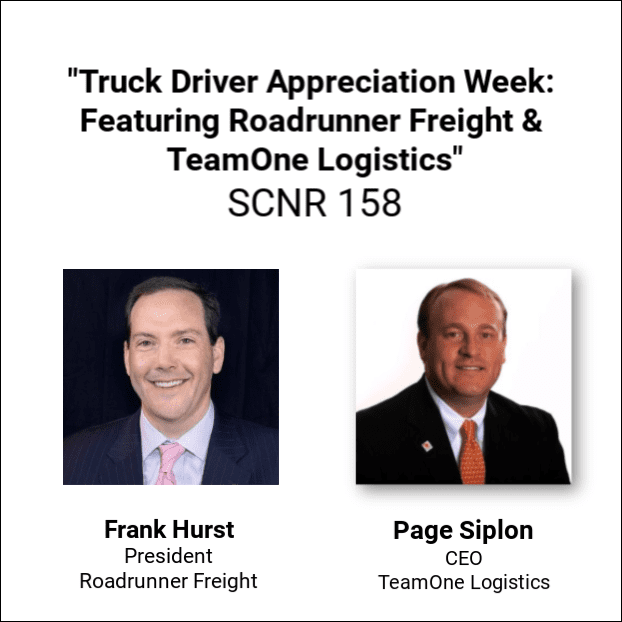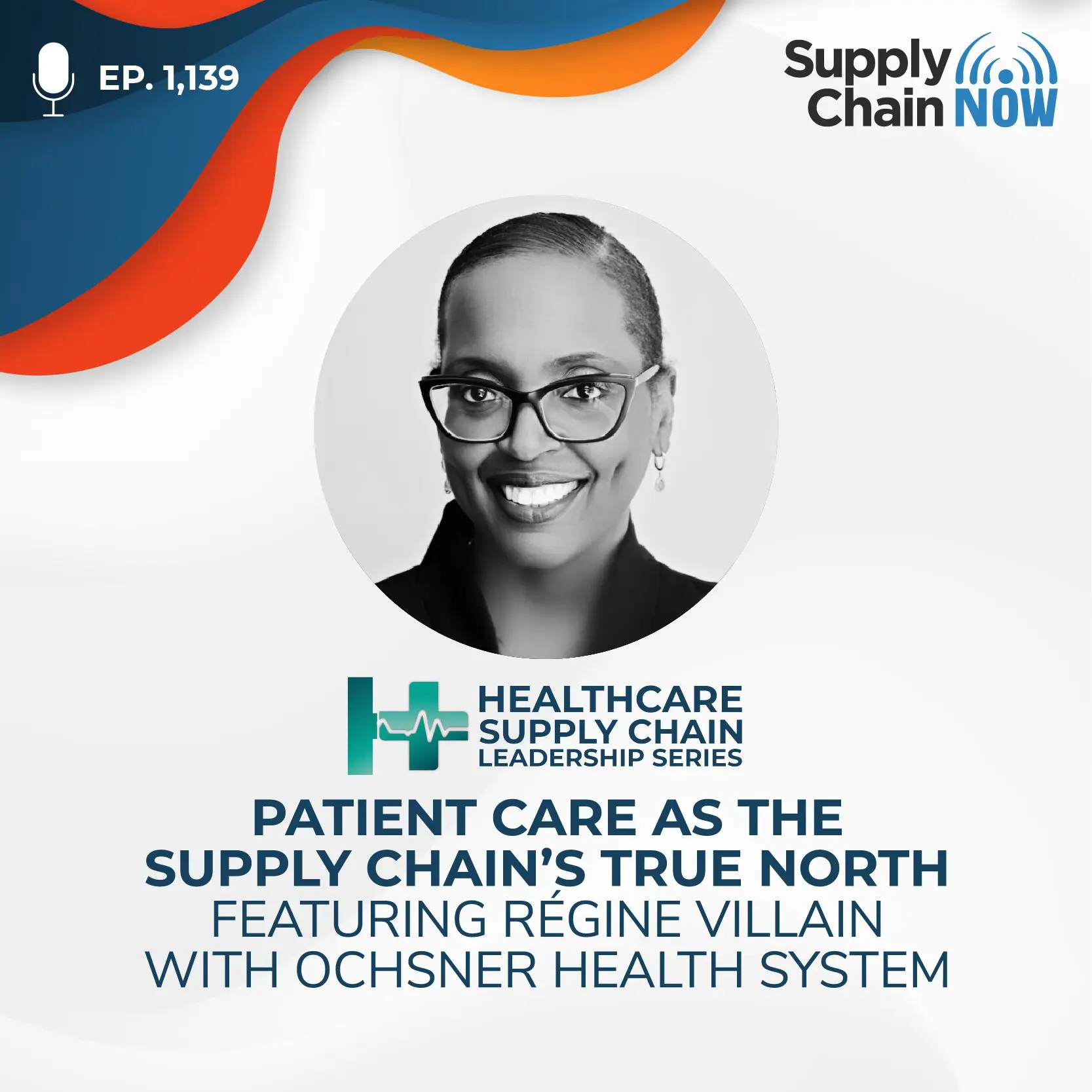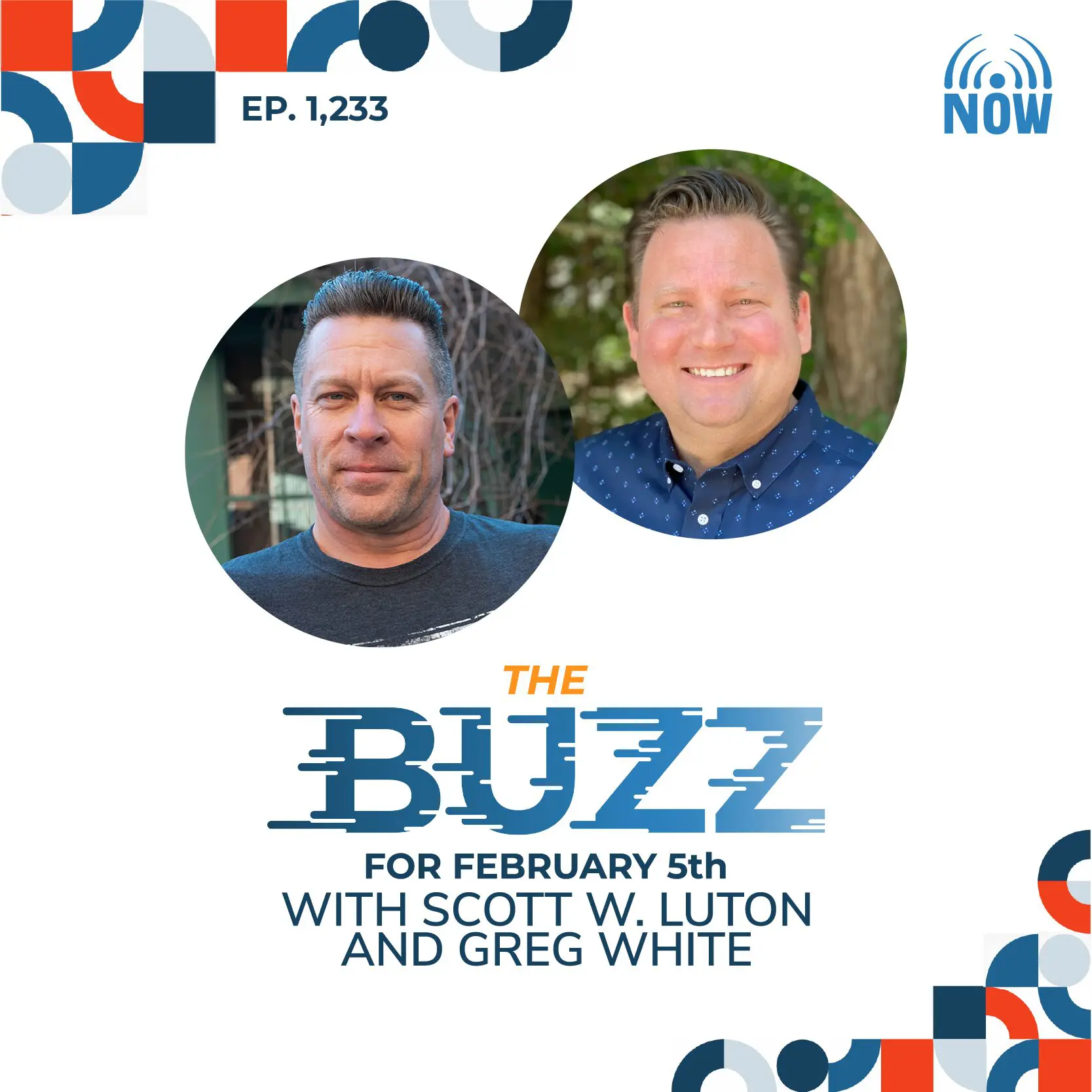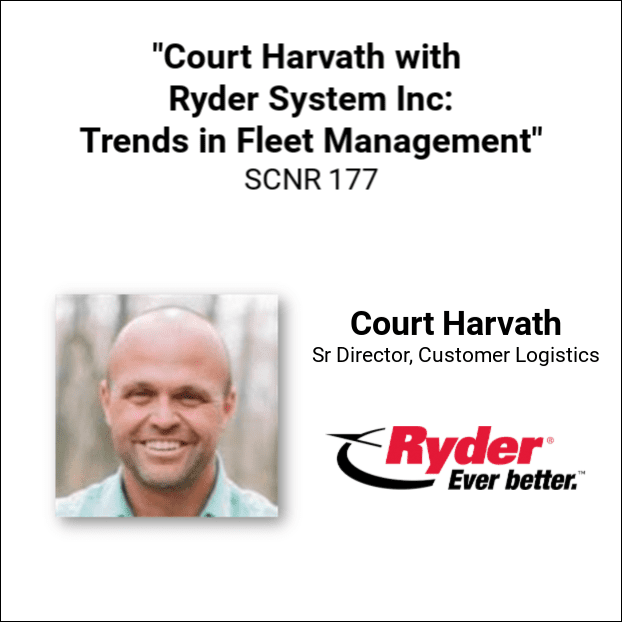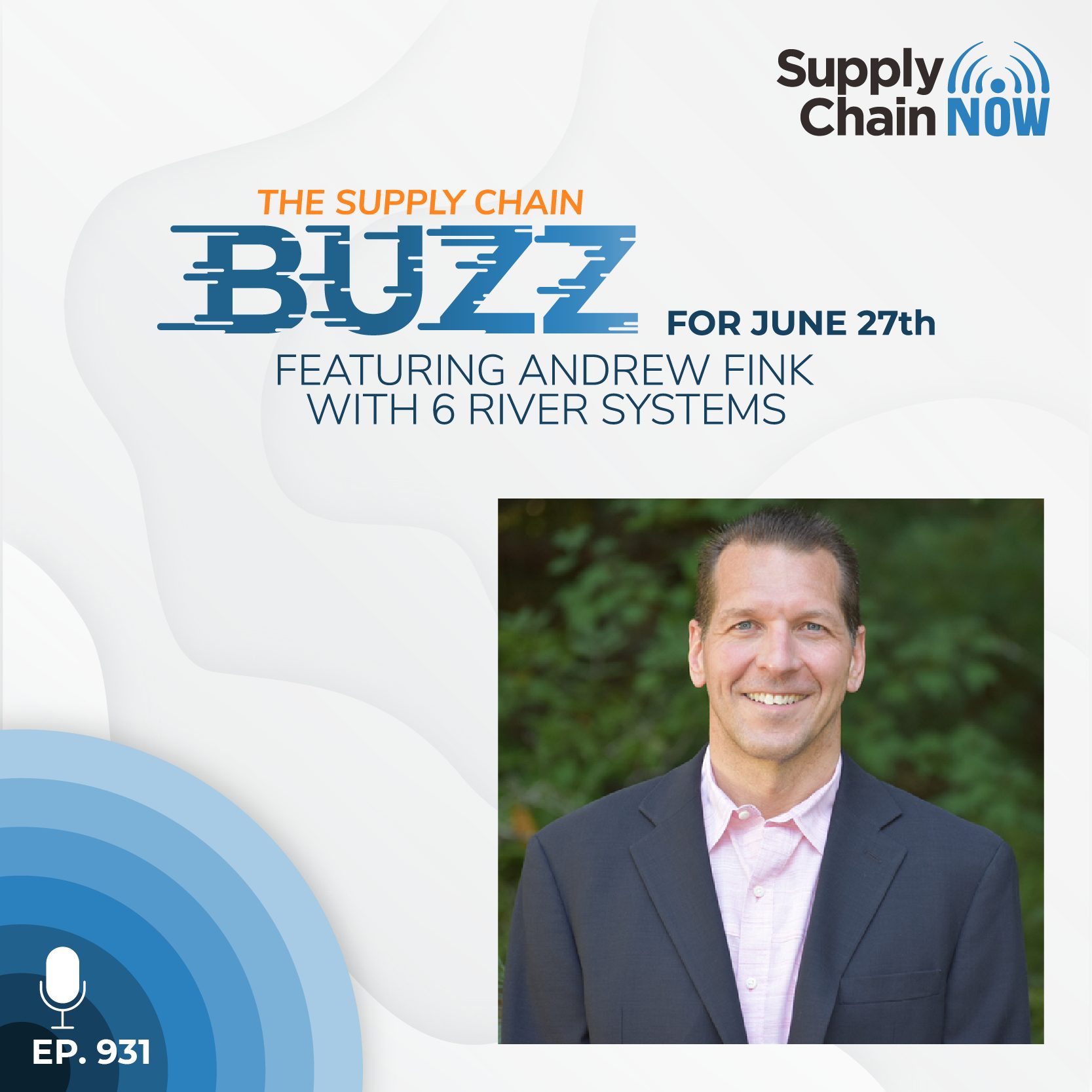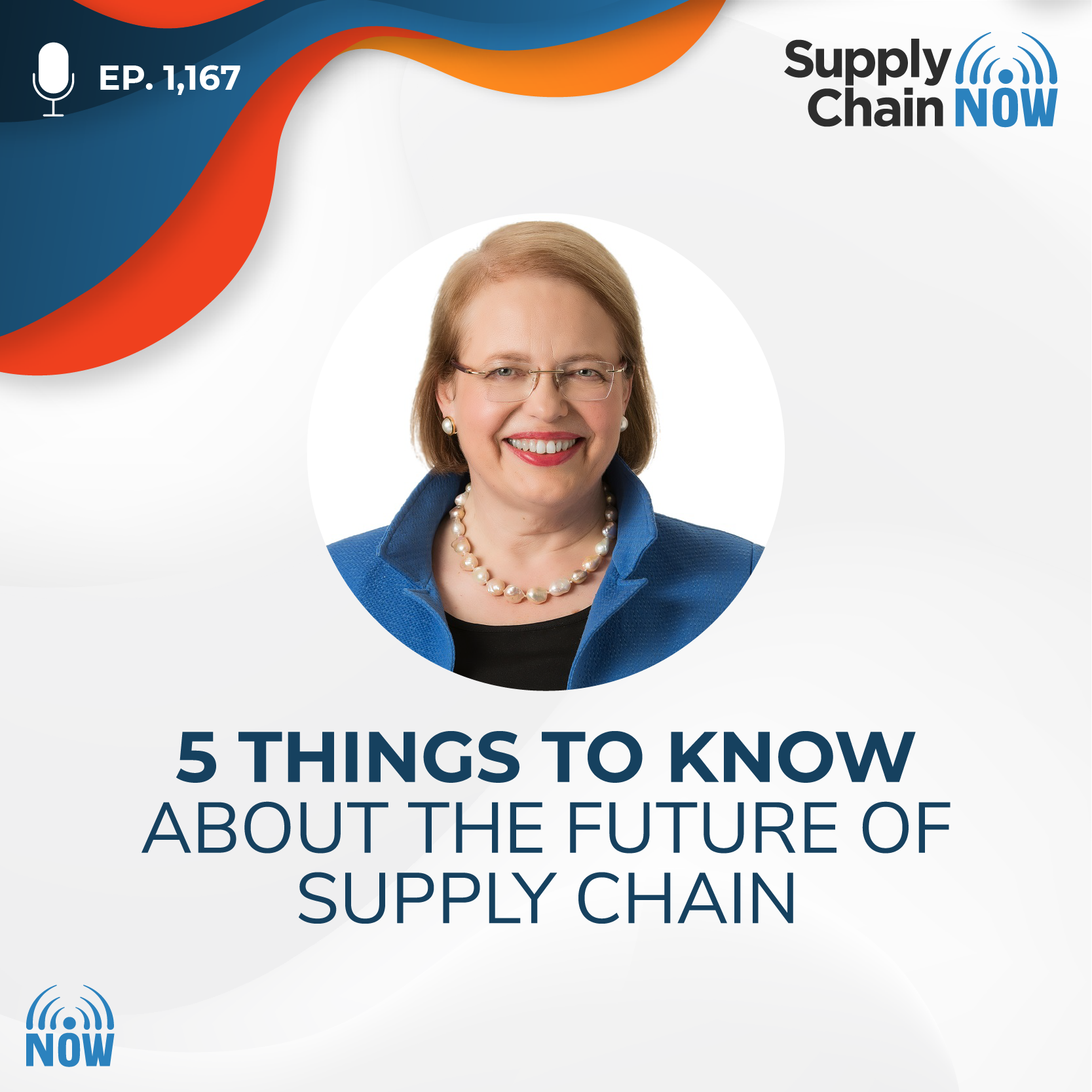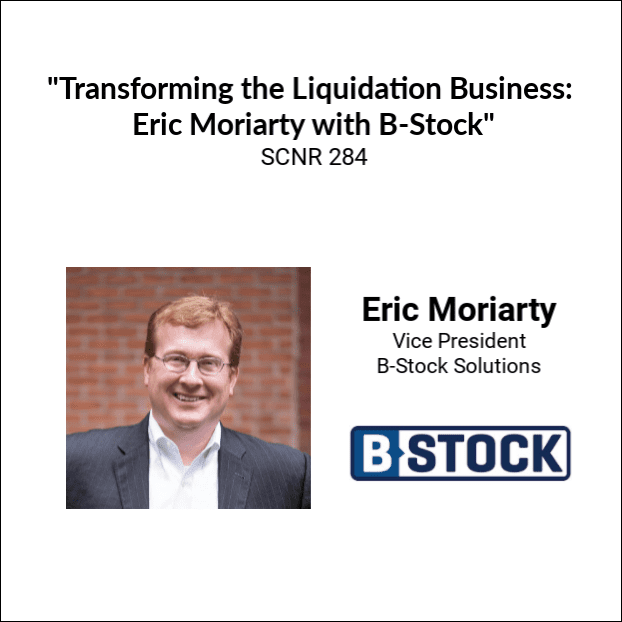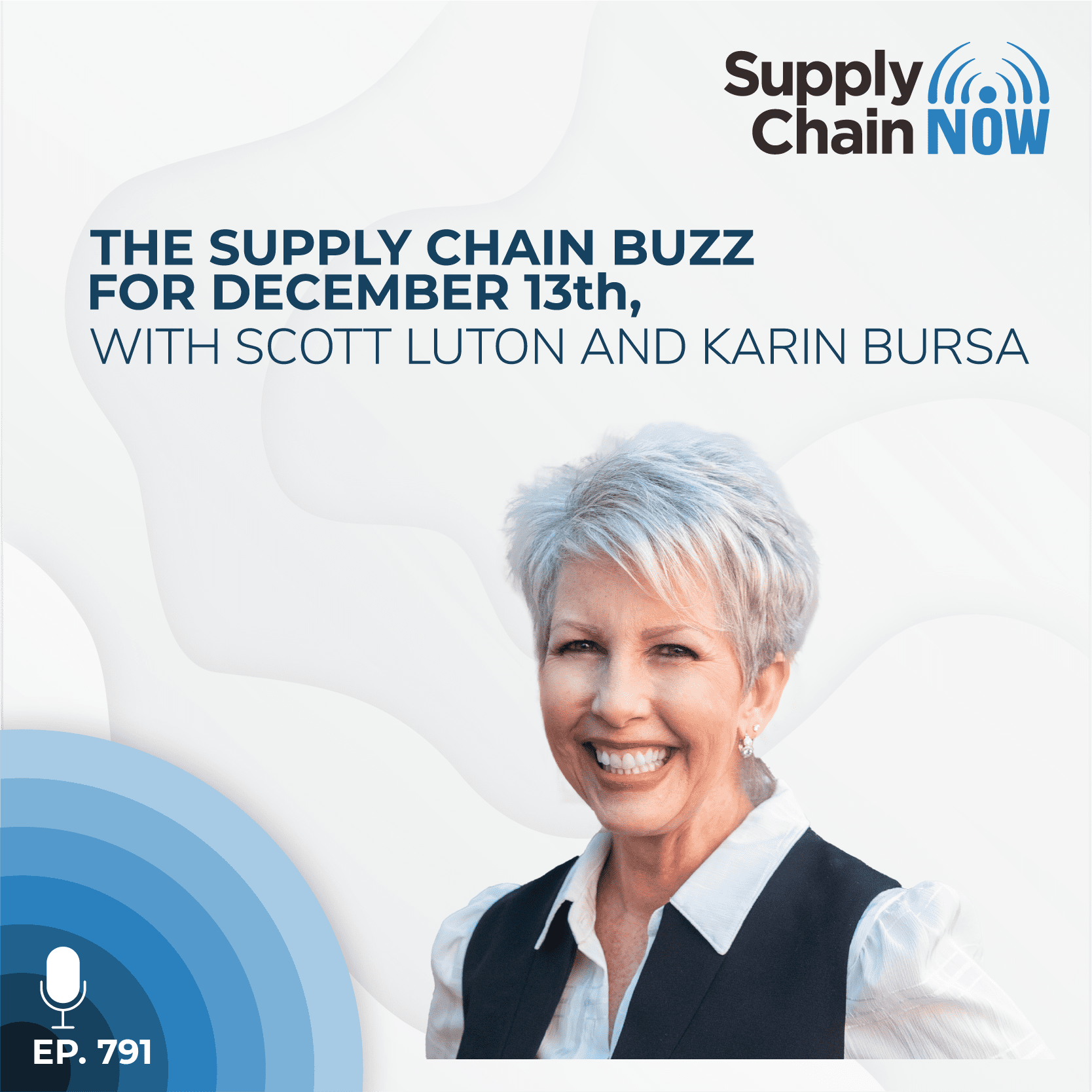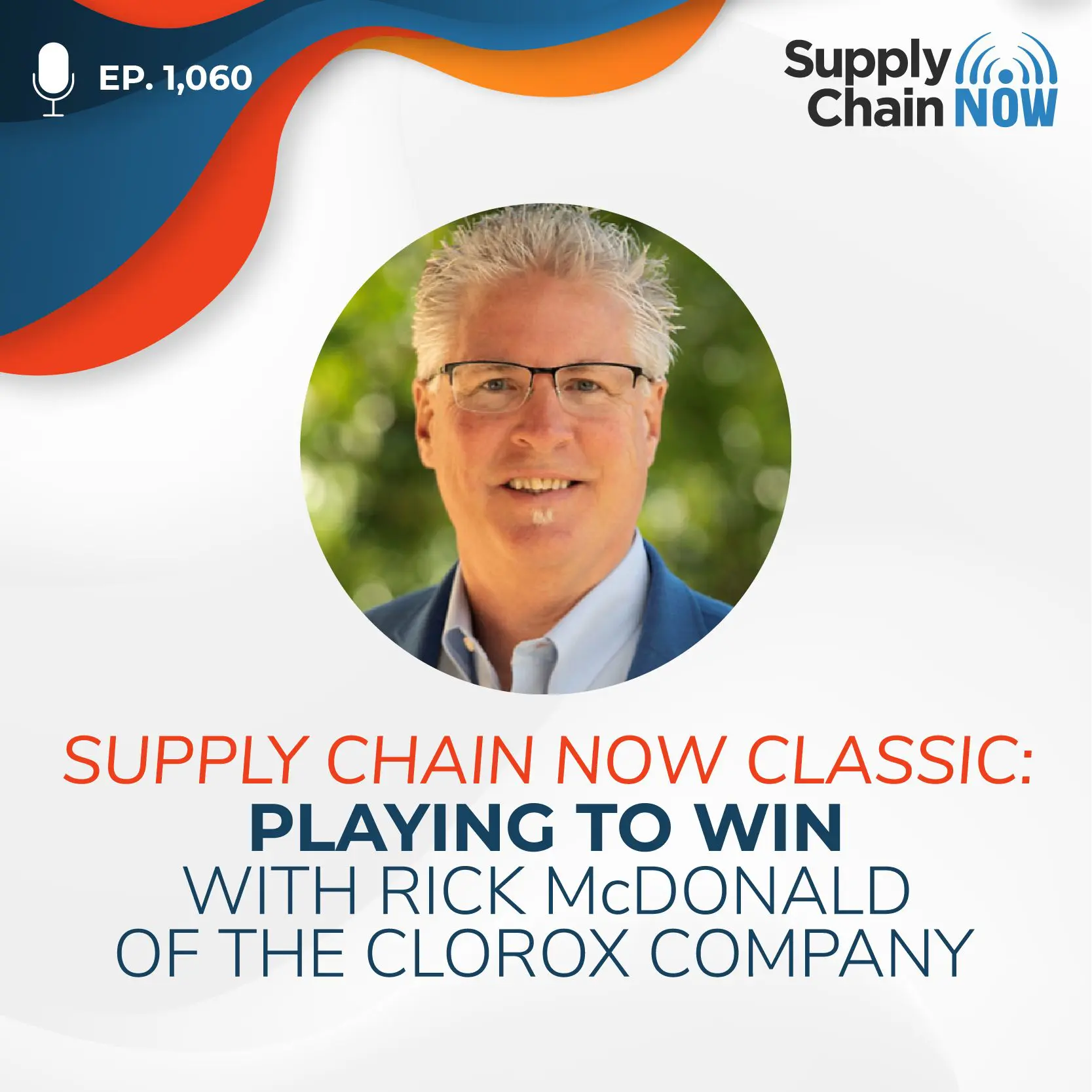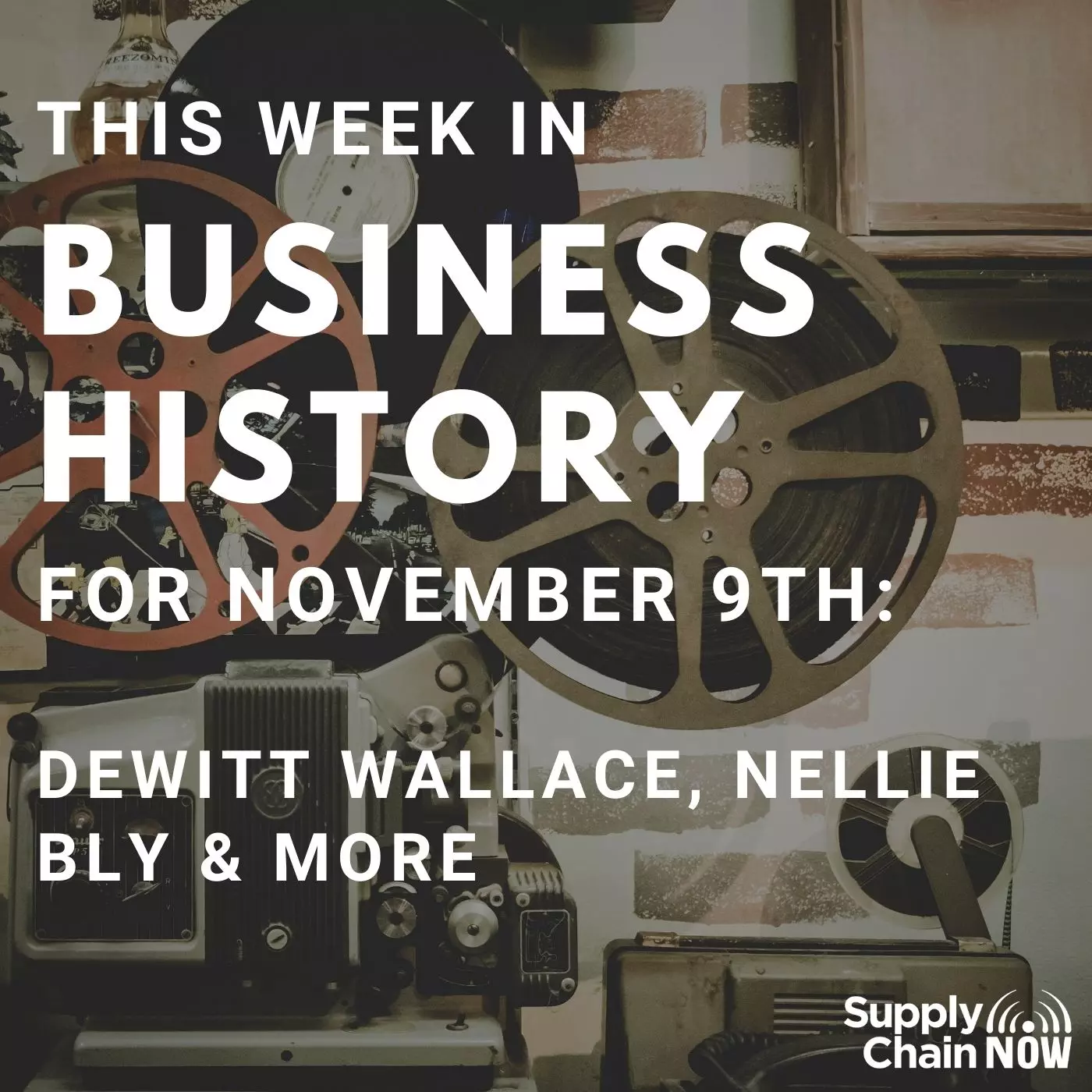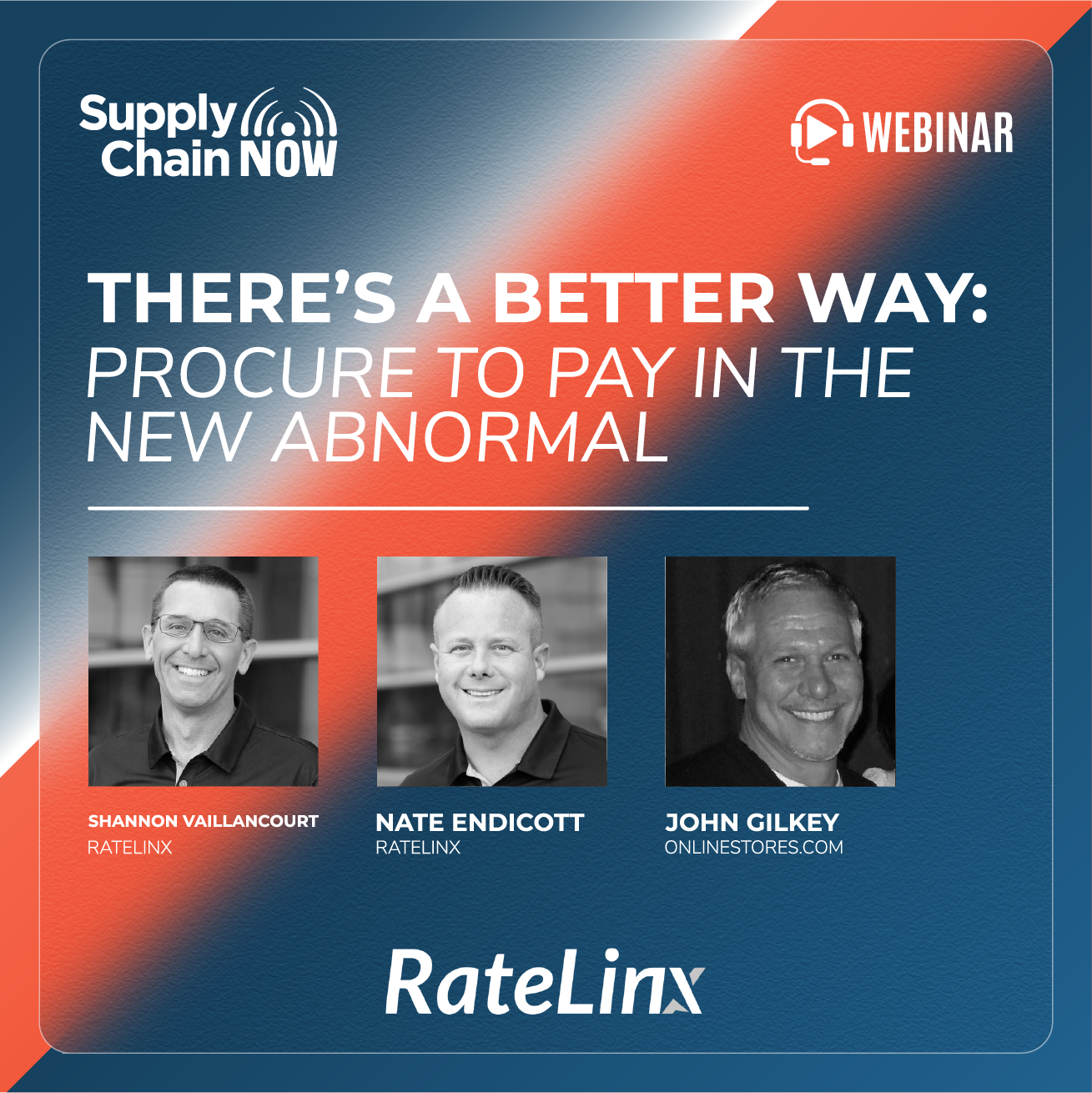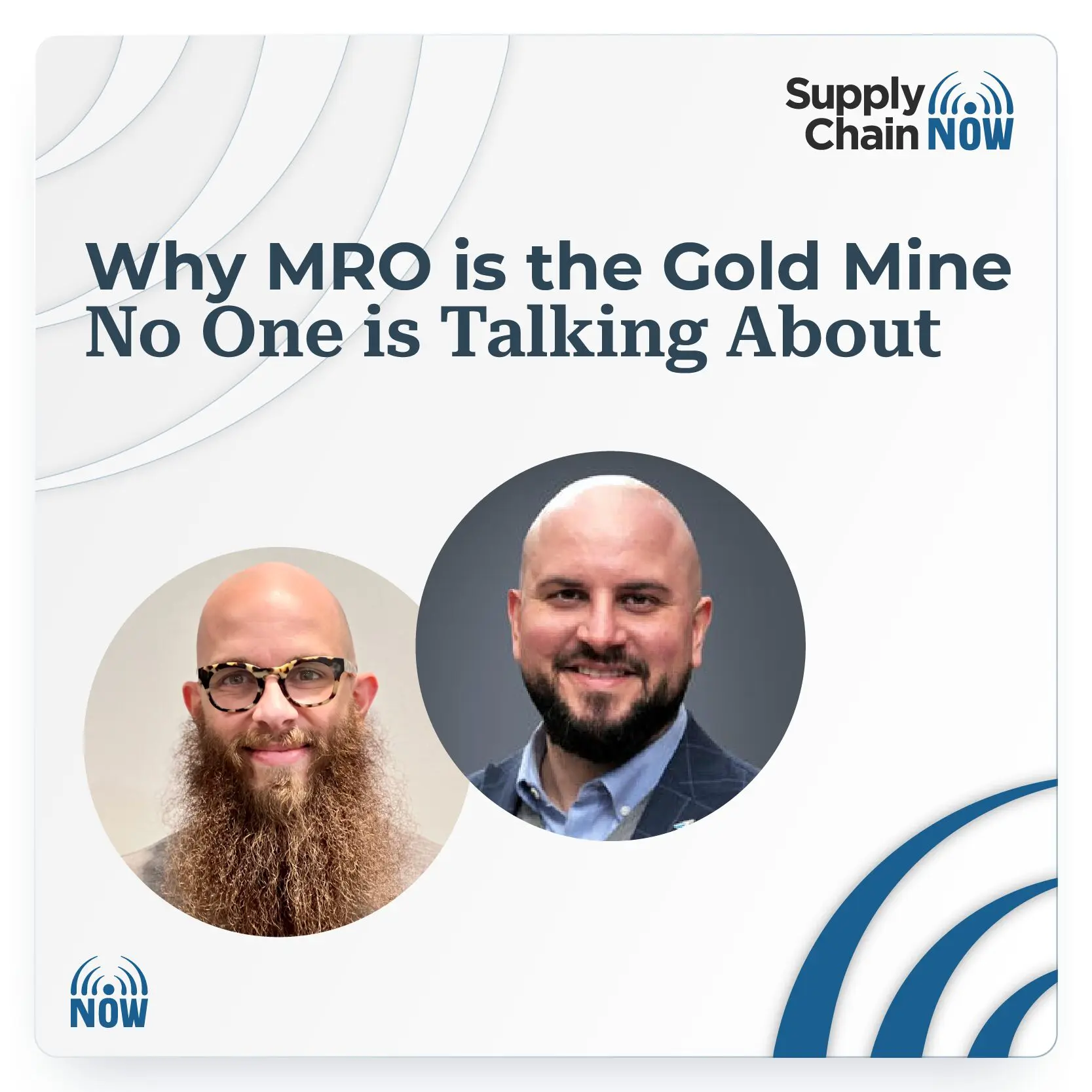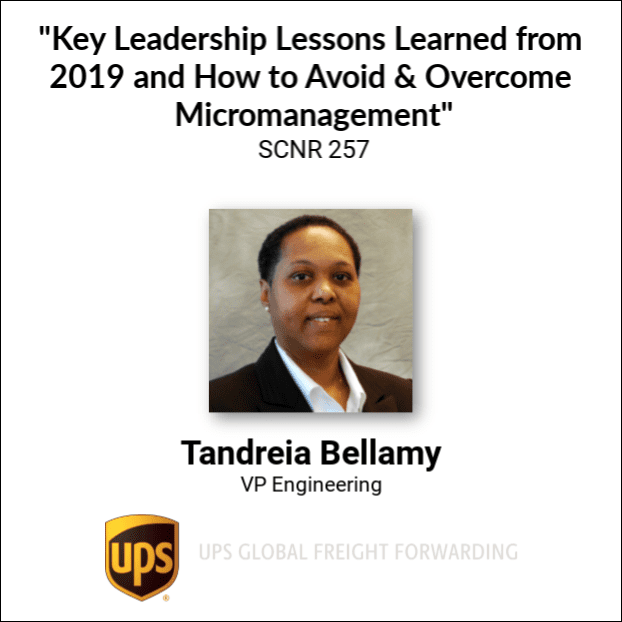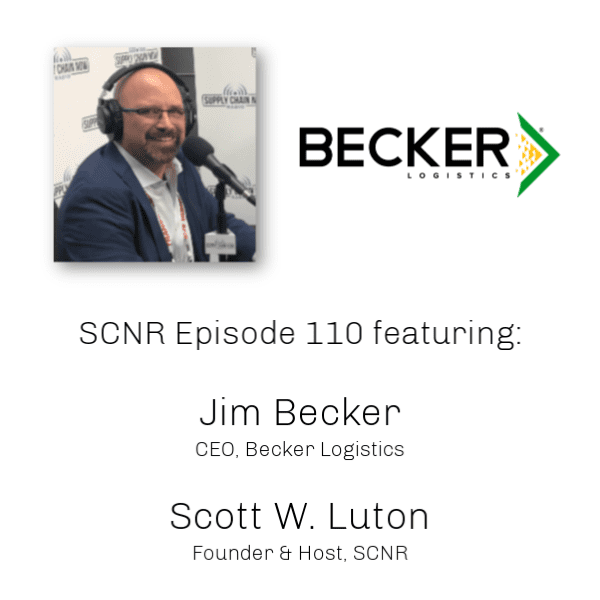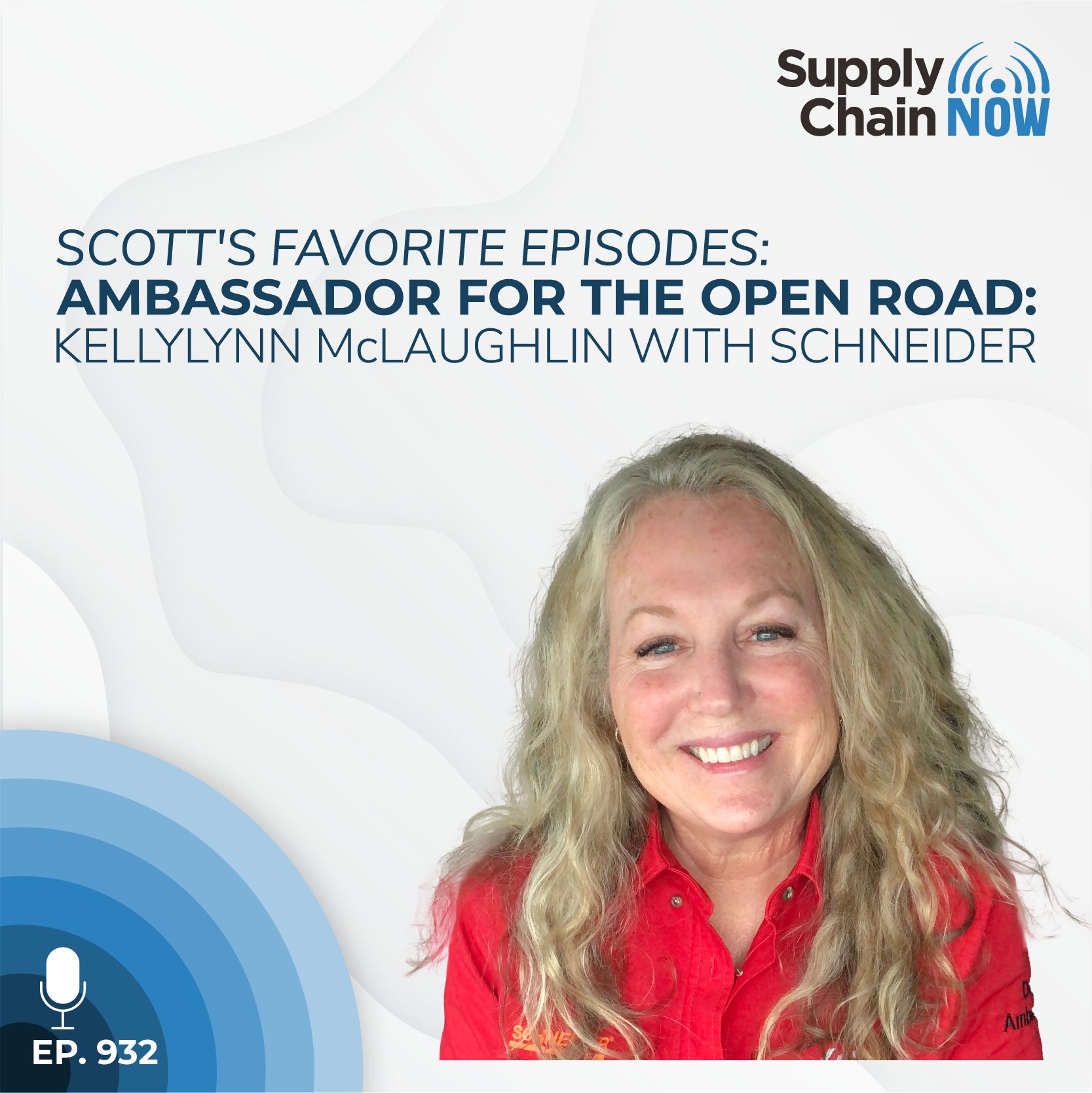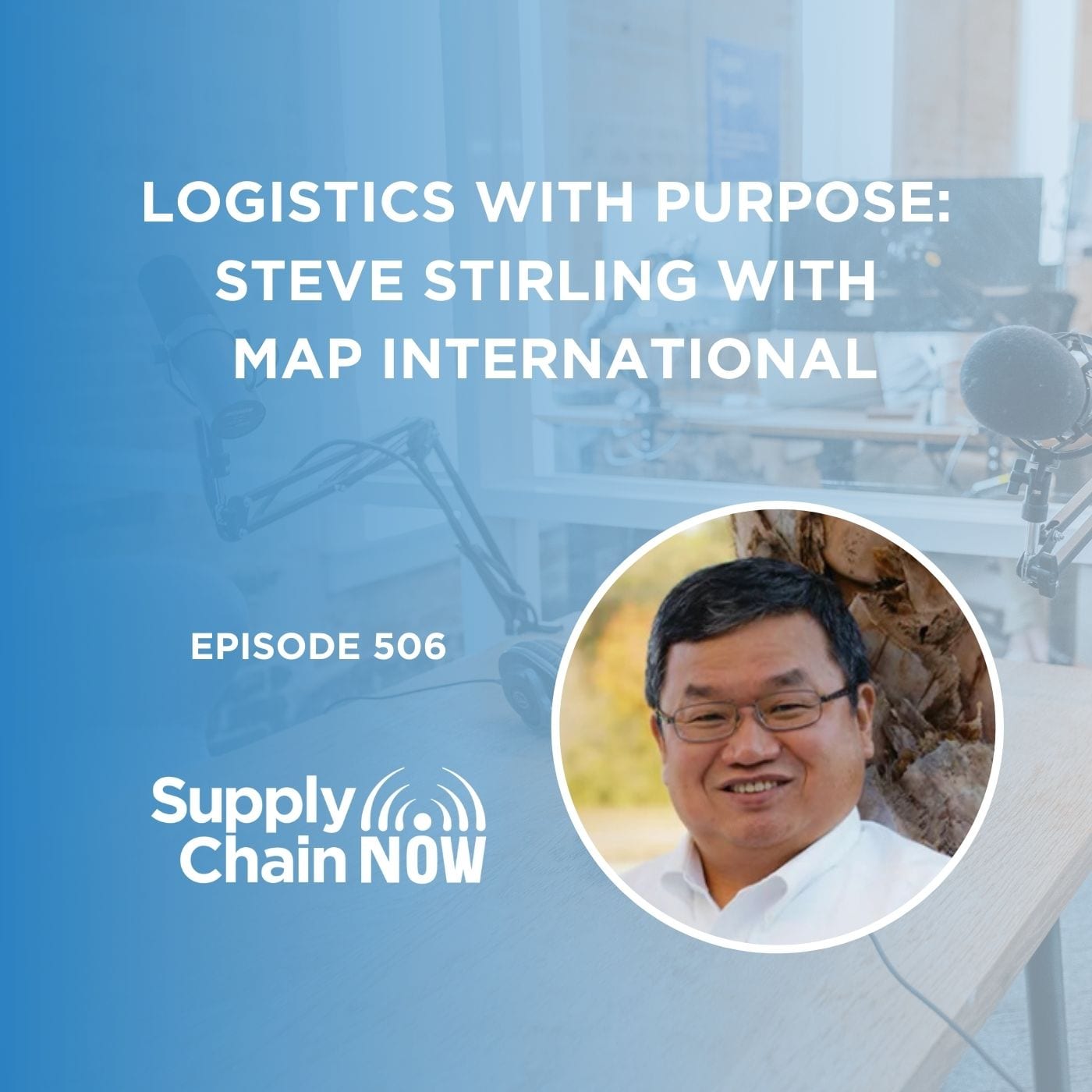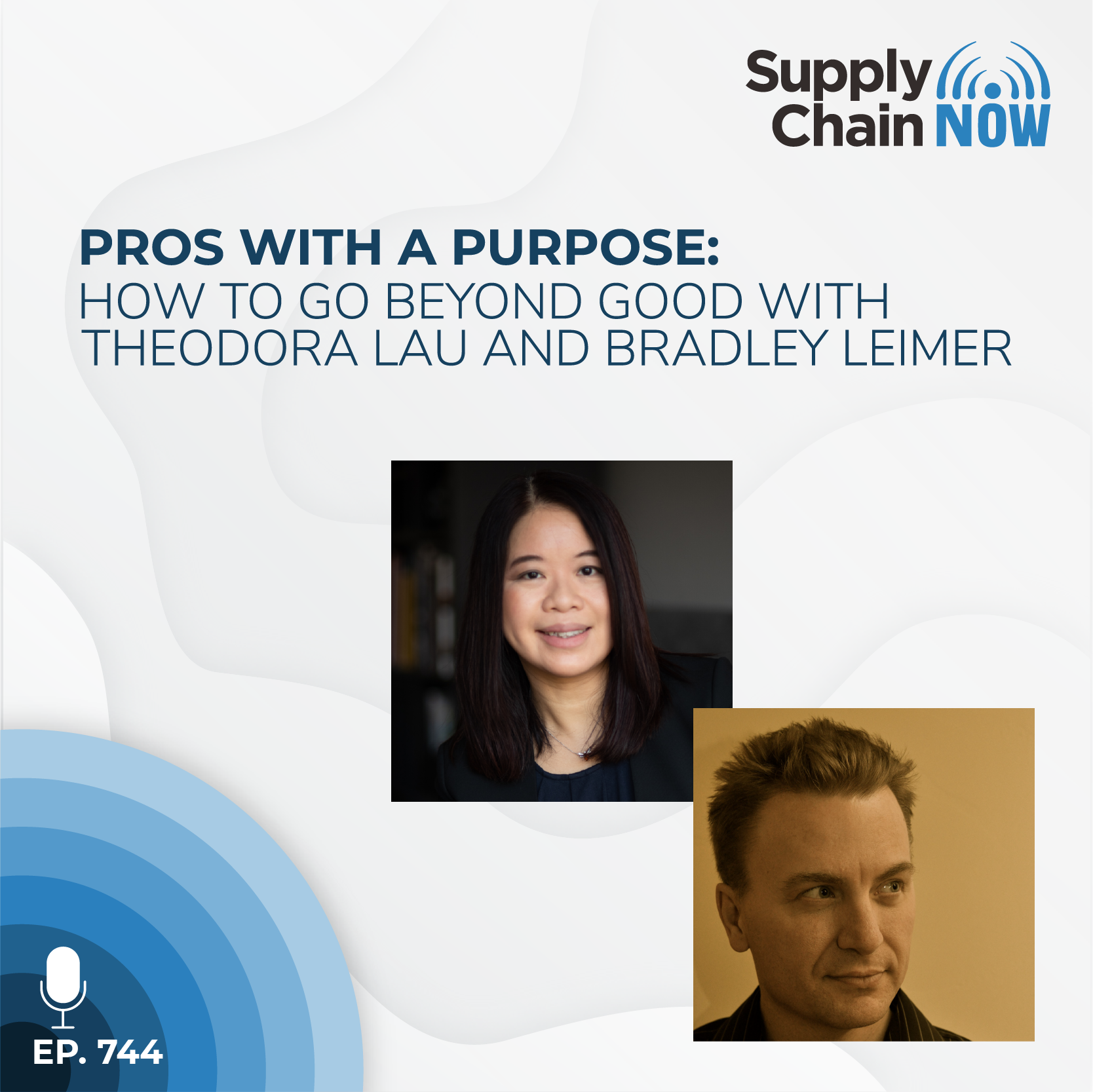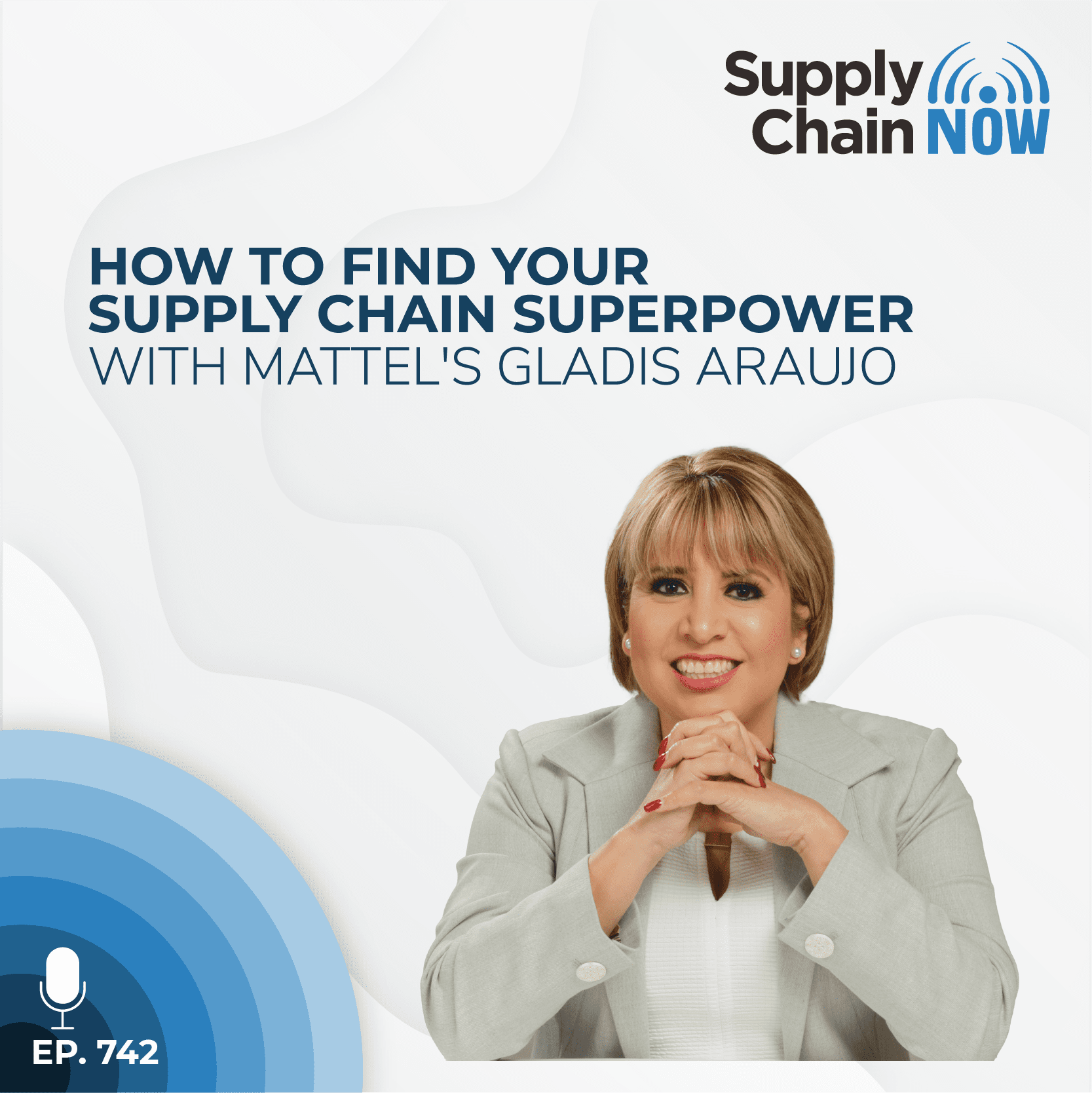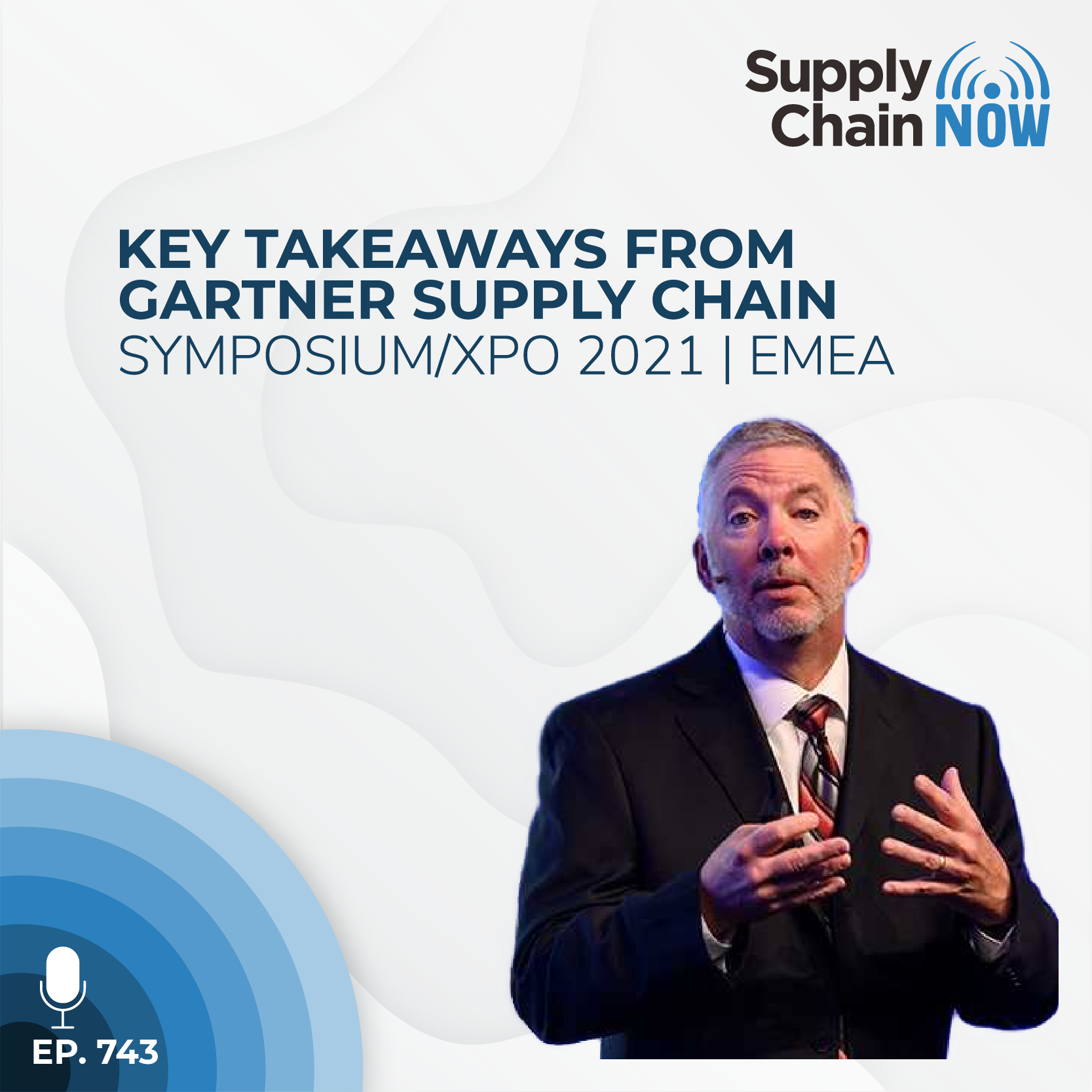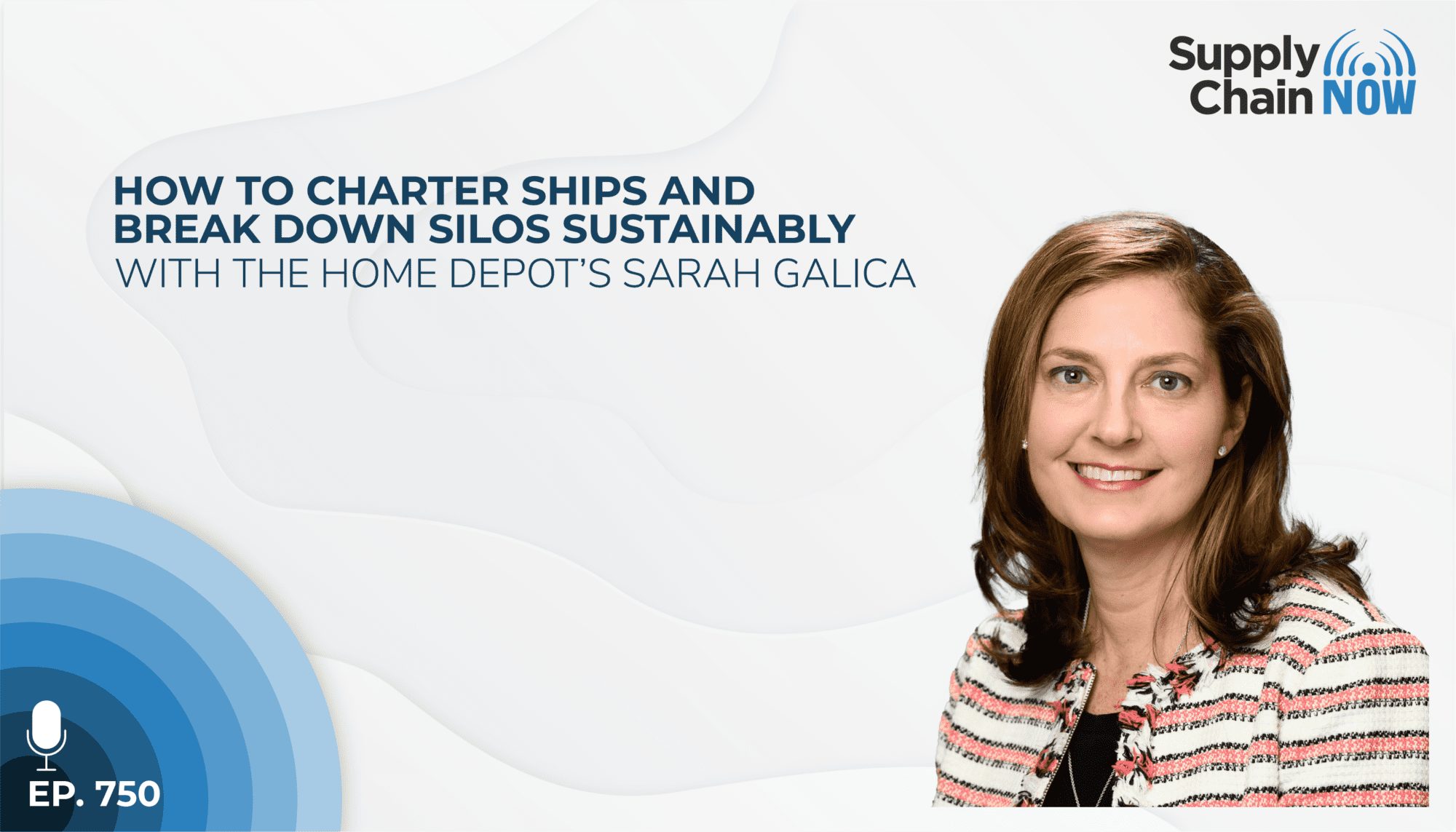
Historically, a lot of supply chains operated very much in a silo. And I think that's one great thing about The Home Depot and how we've really transformed over the years to make supply chain just a part of the organization.
-Sarah Galica, The Home Depot
Episode Summary
While many organizations braced for impact over the last six quarters of supply chain disruption, The Home Depot grew their business by $34 billion. And if that’s not impressive enough – they did it all while advancing their reverse logistics capabilities and reducing their carbon footprint. On this episode, meet the supply chain expert at the center of it all, Vice President of Transportation’s Sarah Galica. Host Scott Luton and special guest co-host Crystal Davis sat down with Sarah to discuss everything from global shipping challenges to the evolution of omnichannel commerce, sustainability goals, digitally transforming the customer experience and more. Whether Sarah’s team is chartering a ship or donning the orange apron, they’re taking the lead on making sure supply chain leaves its organizational silo once and for all. Don’t miss this opportunity to connect with – and learn from – a true expert’s vision for the future of supply chain.
Episode Transcript
Intro/Outro (00:03):
Welcome to Supply Chain Now, the voice of global supply chain. Supply Chain Now focuses on the best in the business for our worldwide audience, the people, the technologies, the best practices, and today’s critical issues, the challenges and opportunities. Stay tuned to hear from those making global business happen right here on Supply Chain Now.
Scott Luton (00:31):
Hey, good morning, everybody. Scott Luton and special guest host, Crystal Davis, here with you on Supply Chain Now. Welcome to today’s show. Crystal, how are we doing?
Crystal Davis (00:40):
I am doing fabulous, doing fabulous. Traveling, but doing fabulous.
Scott Luton (00:31):
Well, really excited to have you here and really excited to have this special guest here with us today. We have an outstanding show teed up as we chat with the fearless transportation leader with one of leading DIY, do-it-yourself, brands in the entire world. Legendary. Stay tuned for intriguing discussion. So, are you ready to introduce our guest, Crystal?
Crystal Davis (01:06):
Absolutely.
Scott Luton (01:08):
All right, let’s do it. We’ve got some energy and some juice in the room here today as you know Crystal and our fellow supply chain nerds perhaps and it’s like having Ric Flair from supply chain come in and join to stay, [inaudible], Crystal.
Crystal Davis (01:27):
Exactly.
Scott Luton (01:28):
Okay. So, on that note, I’m going to welcome in our guest, Sarah Galica, Vice President Transportation with The Home Depot. Sarah, good morning.
Sarah Galica (01:38):
Great morning. Great to see you guys. I’m excited about today, really excited.
Scott Luton (01:42):
We are too. You know, you’re already, you’ve got a world championship belt with us here today, so you’re in good company and really excited to reconnect with you. So, Sarah, for starters, before we get into the really good stuff, the heavy lifting, let’s get to know Sarah Galica a little bit better. So, tell us, where did you grow up and give us some anecdotes on your upbringing.
Sarah Galica (02:03):
Well, that one’s an easy one. I like that as a start question. So, I grew up in primarily in Lombard, Illinois, which is the lilac capital of the world, western suburb of Chicago, until I was about 12 and then my family moved to Atlanta and then I’ve kind of bounced around after that fact. But growing up, I grew up obviously a Cubs fan and a Bears fan and that no matter where I live, stays with me. That has never, never changed.
Scott Luton (02:38):
Cubs and the Bears.
Sarah Galica (02:39):
Which is tough. It’s tough on both realms most of the years.
Scott Luton (02:45):
Well, you know, those schools, Sarah, two quick notes and, Crystal, I’m not sure about you but I think everybody and their brother and sister were 1985 Bears fans on that –
Sarah Galica (02:56):
[Inaudible]
Scott Luton (02:45):
Incredible season. Yeah, I’m a big Clemson fan. The Fridge. I think that was his rookie year. Of course, the touchdown he had. I mean, the incredible team, Walter Payton, Jim [inaudible], ton of personalities. And, beyond that, of course, the Cubs, Crystal and Sarah, broke that long drought just a couple of years ago. So, Sarah, it’s been a pretty exciting journey as a Cubs and Bears fan, huh?
Sarah Galica (03:24):
Completely. You know, I have a small supply chain story that also has to do with the Bears. Many years ago I was at ProMat in Chicago and I went to the booth of Big Ass Fans, the large industrial fans, and guess who was there? William, The Refrigerator, Perry. And, he was signing hats, Big Ass Fan hats. And so, I thought it was fantastic. I was so excited. That was the only time at any of those conferences I actually waited in line for something. So, I still have my Big Ass Fan hat side by number 72.
Scott Luton (03:58):
Okay. I got to get a picture of that number one and number two. A lot of folks don’t know that The Fridge had a younger brother named Michael Dean Perry who also went to Clemson. His nickname was The Ice Box. He’s a little bit smaller, but it was remarkable. The Fridge was ahead of his time. All right. So, Crystal, we could talk about sports and probably Illinois and growing up in Chicago and then moving to Atlanta for quite some time. But let’s talk about The Home Depot a little bit. I think we’re going to do some level setting on the front end, right?
Crystal Davis (04:30):
Absolutely. Absolutely. Sarah, it’s so great to have you here, a fellow woman in supply chain. So, just to get us kicked off, can you just talk a little bit about the sheer size and the scale of the enterprise?
Sarah Galica (04:41):
Yeah, absolutely. So, Home Depot operates 2300 stores. We had $131 billion in sales last year, in 2020. We have over 500,000 associates, some interesting stats about just some recent growth that the company has seen in Q2 this year. We had over 40 billion in sales in the quarter, which is the first time we’ve ever hit that mark. So, we’re definitely continuing to take market share and grow in this really crazy environment. Just in the last six quarters, we’ve grown our business by more than $34 billion. So, when you think about market share and just the growth that we’ve seen and then how supply chain has had to react to that, it’s really been quite remarkable.
Scott Luton (05:32):
Hey, really quick, Crystal. And, I really love this question because I think from a scope standpoint and context, context is so important, it really shows just how big of the challenge that Sarah and the supply chain team has to meet. So, you said 500,000 employees, Sarah, is that right?
Sarah Galica (05:50):
That’s correct.
Scott Luton (05:51):
Wow.
Sarah Galica (05:51):
Associates. We call them associates.
Scott Luton (05:52):
Associates. My apologies. I knew better. So, one last thing and I’ve noticed you on social media. You and the team, one of the great several linings of this time of this pandemic, Tom is recognizing all these associates and all the folks across global supply chain and, you know, including retail that has, you know, hasn’t missed a beat, has kept us all moving forward. And, I know from what I’ve seen and read about you, that’s important to you, right?
Sarah Galica (06:19):
Absolutely. I mean, when we started in the pandemic and at the time I was running the reverse logistics, group and had obviously facilities in the field and tons of associates that were still going into work every single day. And, I can tell you, I was so impressed with The Home Depot executive leadership. You know, we talked every day, right? There were COVID-related calls and the biggest focus was making sure our associates were safe, right. If sales wasn’t as great as we wanted, that’s okay as long as our associates were safe. We wanted to make sure that was a priority and the rest will come. And, it clearly did. We had some amazing sales, but first off it was making sure our associates are safe, taking care of our customers. And then, from there, you know, everything else happens.
Scott Luton (07:08):
I love that. And, you mentioned reverse logistics and then Crystal’s going to ask you about that momentarily, but one last comment, you know, a lot of times when folks don’t think of all the massive retail workforce that has to find a way to come in and take care of the customer, you know, from the point of sale to stocking, you name it. As a former grocery industry stock person, you know, remember those days finally. You know, that’s a very important part of the workforce and big important part of your 500,000 plus strong army of associates, which is great to hear about.
Sarah Galica (07:42):
Yeah, yeah. We’ve always been, you know, a values-based company and during the pandemic it really showed that Home Depot does take it extremely seriously.
Scott Luton (07:53):
Yeah. Well said. Okay. So, Crystal, we’re going to talk about returns and reverse logistics, right?
Crystal Davis (07:59):
Absolutely. Absolutely. So, Sarah, can you speak a little bit about kind of the growing importance of success of the returns and reverse logistics during this time, especially in today’s retail climate?
Sarah Galica (08:13):
Yeah, absolutely. It was an area of the business that I hadn’t spent a lot of time in as a supply chain professional, most of my career. But the one thing that I learned very quickly going into that was, returns will happen, right? There’s always things we want to do as a company to prevent a return by making products better, better information to make sure that the customer understands what they’re purchasing. But at the end of the day, if the customer is not happy, right, Home Depot is going to take care of them. And, the biggest thing that we can do with those returns is make sure that they do not end up in a landfill. And, that is the primary goal of that reverse logistics program is, if the vendor wants it back, we’ll send it back to them. If they don’t want it back, we will look at recycling, reselling, reusing as much as we possibly can.
Sarah Galica (09:04):
We always had – people would actually return and sometimes not even purchase at Home Depot, but they would return flags or just bring a flag back to The Home Depot. And so, all of our reverse logistics, processing centers, had a Gaylord full of flags that we would collect and then bring to a local veterans association. So, it was a really great story. It’s not pretty. It’s not a pretty business by any stretch. But, you know, it was all about maximizing the value of that and completely reducing as much as we can the landfill.
Scott Luton (09:37):
I love that.
Crystal Davis (09:38):
That definitely speaks to the value proposition that you mentioned before and staying focused on core values. Right?
Sarah Galica (09:43):
Absolutely. Yeah.
Scott Luton (09:46):
So, you know, Crystal and Sarah, I had the good fortune of touring one of those processing centers years ago, probably four or five years ago now. I met you briefly there, Sarah. And, to your point, it is a, as those items came in, you could see it. The Home Depot and the team of associates tried to find every way of recycling, gets a lot of that stuff back on shelves and leaving no stone unturned and we’re getting a lot more of that type of focus, right, and deliberate intent in the years to come because as Sarah puts it returns are going to happen and the easier you make it, don’t be surprised if the more returns happen. It’s part of retail. Right?
Sarah Galica (10:29):
Absolutely. And, it’s great to see what the team has done over the years. It started off in a very manual-type environment and now it actually just opened up the fourth RLC. It’s actually called repair and liquidation center. They just opened their fourth one at the beginning of this year up in Pittston, Pennsylvania. So, that was exciting to see what the growth obviously of the company and digital. It was required and it’s up and running and fully automated.
Scott Luton (10:57):
Pittston. Pittston. Is that right?
Sarah Galica (10:58):
Pittston.
Scott Luton (10:58):
Pittston. I wonder what – we’ll have to do some homework on what Pittston’s known for, Crystal.
Crystal Davis (11:03):
Exactly.
Scott Luton (11:05):
I love that, undoubtedly.
Sarah Galica (11:07):
Distribution center from what I can tell right now.
Scott Luton (11:09):
Okay. All right. All right, Sarah, I want to kind of continue to switch gears. We’ve talked with you kind of more from a rear view mirror standpoint, right, where you grew up, what you did previously for Home Depot. Of course, we did some level setting on just the sheer size of the enterprise, which is just remarkable. Let’s talk about what you do now for The Home Depot so shed some light there, and then we’re going to ask you about some Eureka moments.
Sarah Galica (11:34):
Absolutely. So, at the end of January, in the midst of both domestic and international shipping crisis, I became the vice president of transportation. And so, what that means for Home Depot is I manage pretty much everything that ships from a vendor to one of our distribution centers, and that’s both import and domestic, we manage the transportation, and then anything from our distribution centers out to our stores. So, the only thing that I don’t really manage that we have a separate group that is doing is the actual customer delivery portion. So, everything, shipping from our direct fulfillment centers, all of our new one supply chain facilities where we’re doing both job site and customer delivery, big and bulky, that is managed separately. But all of the other modes, obviously the primary for us is truckload. We do intermodal, obviously a lot of ocean freight. And then, very little, we have to mention air freight, but I joked with somebody the other day that if Home Depot has to use air freight, that means I’ve made a mistake.
Scott Luton (12:42):
Yeah. That’s a good way to put it, right?
Sarah Galica (12:45):
Yeah. But it’s a great team. I manage a fantastic team of people that have been transportation experts and have been in the industry. This was my first actual job in transportation. And so, I always want to make sure I thank my team. They’ve been extremely patient and gracious with the learning curve that I’ve had.
Scott Luton (13:07):
[Inaudible] Crystal, that you know I have chatted about this before. You know, there’s mentoring, right, and then there’s a reverse mentoring, which is Sarah’s kind of alluding to, right, where senior leaders learn from folks that have been doing certain things for quite some time. It’s really important. We can even learn from folks just coming into the industry now, Crystal. There’s a lot of value there, huh?
Crystal Davis (13:27):
Absolutely. Absolutely. Definitely [inaudible] leadership.
Scott Luton (13:30):
Yes. Okay. So, let’s talk about speaking of learning opportunities, you know, we referenced Eureka moments around here all the time and unfortunately, or fortunately, here in the last year and a half or so, we’ve had those opportunities for Eureka moments seemingly on an hourly basis. So, Sarah, based on what you do and your journey, what’s been a powerful Eureka moment for you?
Sarah Galica (13:56):
Oh, boy. I think, you know, it’s tough to even narrow it down to one. But the thing that I would say is, you know, when the international shipping and frankly domestic, we got to a point where we realized there was not enough capacity in the market to buy your way out of it. And, that was a very surreal moment I think for Home Depot who normally has no problem trying, you know, getting capacity, both whether it’s domestic or international, and with the driver shortages, with the global shipping crisis, it became a point where you, and that’s really how we ended up with the charter frankly, but that’s been the biggest Eureka moment for me was the fact that things got so out of control and so difficult to manage that even somebody with our buying power and our leverage, we’re struggling to get capacity.
Scott Luton (14:54):
Well, that tees us up perfectly for the next couple of questions here. And, Crystal, I’m not sure about you, but when we hear Sarah was challenging, you buy yourself out of it. You know, one of the challenges of this time is companies, you know, small and medium-sized companies, without wherewithal like The Home Depot, were running out of work around, right? And, it’s just one of the many wrinkles of these interesting times we’re living in. Right?
Crystal Davis (15:22):
Absolutely. Absolutely.
Scott Luton (15:24):
So, you talked about the charter, I want to get an update on the one supply chain issue in a minute. But The Home Depot turned a lot of heads when the news broke, I’m not sure exactly when, a few months back, that you were going to charter a container vessel. So, tell us about that.
Sarah Galica (15:43):
Yeah. It’s become infamous clearly and it’s interesting. And it’s interesting what I would say is it really did start off as us as a team talking and saying we need more capacity. Demand is greater than supply. And, I was economics major so that resonated with me and we were brainstorming that at the time people were talking about air freight and can we charter a plane. And so, for us, we said, well, we can fit like maybe 10 containers of freight into a 747, so probably not going to be a game changer for Home Depot. And, we said, well, why don’t we charter a ship? And so, the team then just worked with several of our third parties and figured out a way to charter a ship. It was actually a bulk vessel that we converted or not waived, somebody converted to a container ship.
Sarah Galica (16:37):
And, it was frankly a learning experience for everybody. We had some different options with regards to the ports that we were using in terms of loading and unloading. But it turns out it was a great way to really move a large chunk of product out of an origin that was in a backlog situation. And so, since then we have, you know, done several more charters and sometimes similar destination, sometimes different origins. And, it’s really, for us, it’s based on, you’ve got X much product that’s going through. We know what our contracted rates are. We have some really amazing partners that we have our contract with, some NVO partners as well, and so we leveraged those as best we can. And then, kind of the last resort is a charter. And, as much press as it’s gotten, which is great, it really only represents – it’s less than 5% of our volume. So, it’s a very, very small percentage.
Scott Luton (17:39):
And so that speaks going back to what Crys was asking about earlier that the scope of the operation. You know, just how much y’all move. There’s a song, we like to move it, move it. The Home Depot makes – I am not envious of your role, Sarah. Hey, that’s all I got some dad jokes.
Scott Luton (17:57):
Crystal, I want to ask you really quick before we get an update on one supply chain. You know, even if it is only 5%, you know, I bet it’s allowed some priority moves to take place and, again, within The Home Depot’s control. Man, leadership getting that creative, right, and that old that’s energizing even, you know, even if it is only 5%. Crystal, what does that say to you?
Crystal Davis (18:23):
Oh, absolutely. I love it. I love the fact that you all were open to brainstorming and, really, this is a great example of thinking outside of the box and I’m sure it energized the team, right, to solve these complex problems in a very different way, so kudos.
Sarah Galica (18:38):
Yeah. You know, we talk about our supply chain being very resilient, very flexible. And, this was just a great example of that. And, what I think is really cool and it says a lot about Home Depot is, you know, to commit to something like that, right. It wasn’t a small effort, right. We had to get everybody aligned from our merchandising team. At the end of the day, anything we spend in transportation, the merchant at the end of the day is the one who balances cost and sales. So, we had to partner with our merchandising folks. We had to partner with our finance team, our inventory planning and replenishment group, and all get aligned on that. So, this was something that was the right thing to do for the company. But it didn’t take that long, honestly, for us to be able to get approval to move forward with it.
Sarah Galica (19:28):
So, it was that idea of coming up with something and then not being afraid to ask for it and say here’s an opportunity. If the company said no, or the, you know, the executive team said no, okay. But we made a commitment to ourselves not to pull back at all. And, if there was an opportunity, we were going to share it and some have moved forward and some haven’t.
Scott Luton (19:51):
Yeah. No business as usual, especially during these crazy times.
Sarah Galica (19:54):
Yeah.
Scott Luton (19:55):
Speaking of major investments and big moves, the one supply chain initiative, which was announced a few years back by Home Depot, I believe at last count, I need to get my calculator out, it was like a $1.2 billion investment in supply chain for the enterprise. There’s so many – we could spend hours upon hours just on that initiative. But give us a few updates on what you are already seeing.
Sarah Galica (20:19):
Yeah. So, to your point, it was over a billion dollars over five years. It started in 2018. And, really, the goal was simple, be the fastest, most efficient supply chain for home improvement products. And, you know, the goal at the end of the day was to be able to reach 90% of the population, same day next day, with both parcel and big and bulky products. So, that’s not an easy task, particularly on the big and bulky products. And, you know, that’s really something that Home Depot is tackling that I don’t know that anybody else is, is building a framework to deliver projects of any size, so, single faucet, hand tools to enough materials to remodel an entire basement. So, our new flatbed delivery network is doing a lot of that job site delivery as well to customer’s homes.
Sarah Galica (21:15):
And, it’s really been going extremely well. You know, the entire supply chain and company is extremely entrepreneurial. And so, we like to, we test and learn on a regular basis and making sure that we’re listening to the customer, and when they have something that they say this is how I’d like to receive the product, we listen. And so, it’s been a great success. And, the fact that we’ve continued to make progress and continuing to open up new buildings, our market delivery operations, our flatbed delivery during the pandemic was I think extremely impressive as an organization.
Scott Luton (21:53):
And, talk about fortuitous that action was taking, you know, three or four years before this current environment. I mean, goodness gracious. That is a stroke of genius, right, in terms of planning and execution.
Scott Luton (22:10):
One last question for you, and then, Crys, I’m going to throw it over to you, and we’re gonna talk about digital transformation, which is also, you know, we hear on the hour. We talked about the chartered ship and we also referenced the capacity crunch. Anything else that you want to mention whether it’s, you know, part of the one supply chain initiative or other things that The Home Depot team has been doing to break through this capacity crunch?
Sarah Galica (22:34):
Yeah. I think the big thing for us, at least from, and I’ve only been in the chair during a crisis, right. So, it’s a little bit unique for me. But the thing that I’m really trying to focus on is being transparent within the organization. We have a weekly meeting where we share information with our field teams that are out there every day on the front lines working belly-to-belly with our customers. And so, I want to be transparent about the challenges that we have, making sure we’re aligned as an organization on the priorities and what we’re going to, you know, move first, second and third. And, I think that’s been a really big win for us internally, being a little bit vulnerable, sharing the challenges and having trust that people aren’t going to use that against you and I think historically sometimes, or a lot of supply chains that, you know, operated very much in a silo. And, I think that’s one great thing about Home Depot and how we’ve, you know, really transformed over the years is to make supply just a part of the organization and we’re one cog, right, in the wheel. And so, I think that’s been really helpful for Home Depot in embracing that type of a culture.
Scott Luton (23:55):
Yeah. I love that, Sarah. And, hey belly-to-belly brings a fun visual to mind, Sarah, and beyond it being fun. I mean, gosh, it has been an intricate one-two Potomac, two-step maybe, between customers these days and supply chains, frankly, on a leading edge of being able to serve them.
Scott Luton (24:51):
Okay. Crystal, we’re going to talk about digital transformation next, right?
Crystal Davis (24:20):
Absolutely. Absolutely. And, Sarah, I had goosebumps as you were talking about making supply chain a part of the business. Like, oh, I wish that would have had happened back in my day.
Sarah Galica (24:32):
It makes such a difference.
Crystal Davis (24:33):
Absolutely. I’m sure it does that. That’s beautiful. That’s a beautiful cultural transformation. But, yet to Scott’s point, let’s shift to digital transformation. So, a lot of, you know, organizations are looking in terms of business resiliency and operational resiliency that digital is a big part of that. Can you tell us, what you think of some Home Depot’s most successful aspects of your digital transformation game plan?
Sarah Galica (24:58):
Yeah. Absolutely. And, I think the biggest thing for Home Depot is that we think of digital as just part of how we sell and transact with our customers. We talk about interconnected retail all the time, right? So, we have tons of visits. We had 3.6 billion visits on our digital properties and on a two-year basis, the sales from those digital platforms increased about 100%. But what’s really cool about it is that 55% of our online orders are actually fulfilled through the store. And so, that’s why we talk so much about interconnected is sometimes a customer will start online, finish in the store and vice versa. And so, for us, it was about making sure we’re listening to the customer and how they want to interact and not necessarily thinking about from a merchandising perspective as online versus in store, right. We really connected those two things together.
Sarah Galica (25:56):
And, I think that’s helped because all the merchandising teams, marketing, everybody’s focused on the same goal, which is however the customer wants to purchase and however they want it delivered, we’re going to take care of that. And so, it’s a lot of work over the years to make sure that we had the right platform, that we had the right experience both on the app. We have experienced also for our pro business to make sure that our pros can operate in the same type of an environment, but their needs are different than a consumer. And so, we’ve done a lot of focus on making sure we’re following where they want to go. We’ve talked a lot about our planned pro purchases, right? Home Depot has always been a great destination for pros when they have something that is broken or they need [inaudible].
Scott Luton (26:54):
And, it’s just to clarify. Sarah, really quick, when you say pros, you’re talking about professional contractors, right?
Sarah Galica (27:00):
That’s correct. That’s correct. And so, one of the things that we’re using our digital transformation is also making sure that we can connect our pro customers and allow them to make large planned purchases. So, I need lumber for a job site. I need roofing. I need all these things. And so, we like to think about the customer and all those different aspects, not just the person sitting on their phone, right, browsing product. It’s all the different types of customers that we have. So, those flexible options are really what we want to focus on.
Scott Luton (27:37):
You know, Sarah and Crystal, we talked about how we hear the words digital transformation all the time. Of course, we hear capacity crunch all the time. Some of the things we’re talking about. But one phrase we don’t hear as much anymore is, no you can’t do that Mr. and Mrs. Customer. And, that’s what Sarah is really speaking to, right? The power, the leverage that customers have these days and getting it their way in whatever channel or a platform and, really, it’s intriguing business study of where we are here in 2021.
Sarah Galica (28:09):
Yeah. One of the more interesting things that I love to share with people that don’t know sometimes about The Home Depot app and because it’s something I use every day, well every day I’m in the store, is you can search for a product on the app and then find out exactly which island, which bay it’s in in the store. And, it’ll walk you there. And, to me, that is such a cool aspect of – you know, I always used to joke when I joined Home Depot and you start working in the store, right, which we highly encourage a lot of people to do on a regular basis. And, people would walk in, see the orange apron and asked me where a very one specific product was, because I had the orange apron. And, you know, we have over 50,000 different products stocks in our forth. But at the end of the day, they were expecting me to tell them exactly where to go. So, that’s how I learned pretty early on about that the version, that functionality in the app, and it’s gotten so much more sophisticated over the years. And, again, some people don’t want to ask the question to a customer or to an associate. And so, they can DIY how to get that.
Scott Luton (29:18):
Right. Well, you know, speaking, you know, I mentioned my grocery background. What would always get me when customers ask me where, in Winn-Dixie back in the day is where I worked stocking shelves, my first job for $4.35 cents per hour, the condensed milk. “Excuse me, sir. Where is the condensed milk?” And, that’ll get me every single time and we probably didn’t have [inaudible] items in our store back then. But anyway, Crystal, I digress, what are we talking about next?
Crystal Davis (29:44):
I can tell you where the condensed milk is, but I’m guilty of asking the orange apron.
Scott Luton (29:51):
Love it.
Sarah Galica (29:52):
Yeah. Don’t be surprised if they don’t know all 50,000. It could be –
Crystal Davis (29:55:
Absolutely.
Sarah Galica (29:55):
Yeah. It could be somebody with that store support center that knows maybe 10 of them, so.
Crystal Davis (30:01):
Absolutely, absolutely. But, I do love the intimacy that you described about the user experience so that’s awesome. So, on that same vein of digital transformation, let’s talk a little bit about sustainability, which is probably, you know, more important now than ever. What is The Home Depot doing in this area?
Sarah Galica (30:19):
You know, that’s a great question. It’s something we love talking about. We have our Vice President of Sustainability Ron Jarvis and he works in the supply chain organization. And, he and his team have done just an amazing job. We partner with so many different third parties. We just released our 2021 ESG report and that has a ton of information about all the things that we’re doing really to improve the environment across the enterprise. And, we’ve got a couple of really great things. One is we’ve pledged to have 100% renewable energy for all of our Home Depot facilities worldwide by 2030, which is a big deal on the carbon footprint, all of our investments in supply chain. So, whether it’s, you know, automation in the facilities or filling trucks more than we used to. We received – it was 22% reduction in carbon dioxide emitted for each dollar of revenue we earned in 2020 versus 2019.
Sarah Galica (31:24):
So, we’re becoming so much more efficient in moving product and reducing that carbon footprint. It’s something we started tracking. Gosh, it was probably 10 years ago when we first started looking at our carbon footprint early on in our supply chain journey. And, it’s really been amazing. We also do things like hydrogen fuel cells and we’ve got them right now in, I think, about nine of our supply chain facilities, so emission free fuel for forklifts, right? We evaluate it and it’s really been a great win for, especially when we’re opening up a new facility, it’s really easier, instead of retrofitting to hydrogen. It’s really been a great option. We’ve reduced the electricity consumption by 16 million kilowatt hours in 2020.
Sarah Galica (32:18):
So, just some amazing work that we, as both as a transportation team as a total supply chain, work daily to make sure we’re doing what’s needed for the environment for sustainability.
Crystal Davis (32:33):
That’s wonderful.
Scott Luton (32:33):
Well, you know, and just like price and availability and certain products, all those things are important to consumers more and more and it have been for years, sustainable business models. You know, consumers are more and more voting with their wallet, right? Is that what you’re finding, Sarah?
Sarah Galica (32:51):
Absolutely. And, you know, the other piece that we like to focus on also is recruiting, right? We, at Home Depot, want to make sure, you know, we also can showcase what we’re doing from an environmental perspective to make sure we’re also getting the best talent right now. I think the younger generation is much more focused and willing to spend money on a company that has a good plan. And so, both for the customer, that our existing customer, our future customers and our future associates, these are big things that, you know, obviously are good for many other reasons. That’s just another side benefit.
Scott Luton (33:30):
Right. Love it. Gosh, this day and age of trying to become a talent magnet is so important. You know, on that note, we’ve interviewed some of your past colleagues in the past. As a veteran, I really admire what The Home Depot does to invest in not just veteran support projects initiatives but also to higher veterans which is a great thing to do. So, I admire y’all’s company for what you do there.
Scott Luton (33:57):
Okay. So, Crystal we’ve come so far with Sarah. Of course, we could dive, you know, from where she grew up to just the overall The Home Depot enterprise and some of the things they’ve done there. We could have a whole series with Sarah Galica, right?
Crystal Davis (34:12):
Absolutely. It’s been an amazing conversation.
Scott Luton (34:14):
So, before I continue for, I’m going to ask Sarah a couple final questions here. But, Crystal, so far, what Sarah has shared, what’s going to be one of your key takeaways from this discussion with Sarah here today?
Crystal Davis (34:30):
So, I have two competing ones. One is the supply chain being integrated, you know, in the company and not just kind of a silo. Absolutely love that. And, it’s so pivotal now and important now with all of the supply chain challenges that are getting noticed at the top of the organization. But I’ll say the biggest one for me is throughout the conversation, Sarah, you’ve illustrated how the company’s core values are really present in the work that you do, how you lead the team, how you engage the team, how you attract talent, how you care for the world and the environment. So, it’s been a great conversation and you’ve just demonstrated how important it is for a company’s core values to come through in the everyday work that you do, so kudos.
Sarah Galica (35:20):
Yeah. That’s been such a big part of the company as you know we do training and all these things are leading through our core values, leading with our core values. And, it’s just that I’d say just the guiding principles, right, of the company. And, if you make decisions through that values wheel that we have, you really can do no wrong as long as you’re leading through and making decisions with that values.
Scott Luton (35:43):
Great observations there, Crystal. I really appreciate that. It does seem like it’s filtered down right into day-to-day business.
Sarah Galica (35:52):
Absolutely.
Scott Luton (35:53):
Okay. So, Sarah – and by the way, it seems like you’re really enjoying what you do. Crystal, you know, I’ve had plenty of these conversations and sometimes you get folks, you know their eyebrows are scrunched and they’re showing the pain of getting through what they do. Sarah, it looks like you’re having a ball.
Sarah Galica (36:12):
You know, I am. I am having a great time. I’ve got a fantastic team, a fantastic group of colleagues that I work with across the supply chain, a great leadership team. And so, I would say, yeah, you know, there are probably more gray hairs now than when I took the role in January. Luckily, there’s remedies for that. But I am having a great time. I think Home Depot is just an amazing company and to be able to lead an amazing team through these really tumultuous times is really a privilege.
Scott Luton (36:47):
I love that. And, checking out my Home Depot app, yes, there’s remedies for gray hair [inaudible] 54 on your local store, right. All right. So, two final questions for you. First up, finish this sentence for me, Sarah. Fill in the blank. Good old fill in the blank. Global supply chain leadership would be better if. How would you finish that sentence?
Sarah Galica (37:10):
I would actually go back to some of the earlier comments and say if we didn’t act in a silo, and trust your partners upstream, downstream, vendors, customers, to help guide in those decisions. I think it’s just, for me, having also the perspective. I worked in our inventory planning and replenishment team. I’ve worked in distribution. I’ve been a merchant before within Home Depot. Having that perspective really I think has helped also open up the entire team’s eyes to, you know, everybody is really trying to do the right thing, a lot of times just not understanding what an individual group is focused on. So, to me, it’s all about breaking down those silos. Working really well cross-functionally within supply chain and then across the organization to me is really what – you know, I’m not going to try and start solving our port crisis and all those other things because I don’t think there’s an easy sell for any of that right now. But that communication and transparency within an organization to me is critical.
Scott Luton (38:24):
Yeah. Great answer, and two quick thoughts and, Crystal, welcome yours as well. I think first when you were talking, you know, there’s been the ports perhaps that had never been in the spotlight as much as they have been these last 18 months. And, you know, ‘cause Sarah talked about transparency and transparency when it comes to challenges, I think one of the big lessons learned and one of the big opportunities we’re going to have, especially here in North America, you know, you got ports leaders coming out and they’re calling out the fact that we do business in some cases a couple of decades behind how the ports conduct business in the parts of the world. So, there’s a tremendous opportunity for much more effective collaboration and data sharing and coordination amongst at least our nation’s ports and we’ll see if we can make progress in that regard in the months and years to come.
Scott Luton (39:08):
But then secondly, you know, the silo. Both of y’all called out the silo because whether we like it or not, the silo mentality is found across industry. And, especially when it comes to supply chain, we’ve seen big enterprises try to integrate, you know pull everything into kind of these massive, not control towers but massive functional areas, departments and whatnot. It’s next to impossible. But, Crystal, those are two things that kind of [inaudible] as Sarah shared her answer to our fill in the blank question. Any final thoughts on your end before we make sure folks know how to connect with Sarah?
Crystal Davis (39:42):
I definitely agree with you there. In terms of the ports, I think it’s going to take, you know, a lot of collaboration across the globe to figure out those challenges and to adopt best practices, you know, across the board definitely, you know, to relieve some of that backlog, right. And then, as it relates to the silo position, I think that’s so critical because I can tell you that a lot of supply chain professionals that I speak with now, they just feel like they’re kind of caught between a rock and a hard place. And so, you know, to be able to engage with them in a different way as a partner, I think it’s more important now than ever in this time of crisis. But the supply chain professionals have been in this time of crisis going on, you know, 19 months now. So, it starts to weigh very heavily on people. People start to feel burnout, you know, never a sense of accomplishment in the role. So, I think it’s a big deal for people.
Scott Luton (40:44):
Excellent point. And, Sarah, I’ll give you – any comment there? You’re kind of the profession in how, while we’ve – you know, as Greg white, who I host a lot of shows with, as he says, you know, supply chain has earned a seat at the table but we celebrate that momentarily because we’ve got to get to work and got to earn it, we got to deliver now. And, as Crystal points out, I mean, this has been a long, slow burn at times, fast burn at other times and it’s important to keep these practitioners take care of our people, right, Sarah.
Sarah Galica (41:18):
Absolutely. And, I hear it. And, if there’s one thing that I’m concerned about more than anything else right now, it’s burnout on the team. You know, they’ve been, I’ve been in the game in this role for only eight months. And, a lot of these folks have been literally every weekend, week out, constantly trying to get more capacity, try to minimize costs, trying to fulfill all of our customers internally and externally with what they need. And, that’s the thing I worry most about is, you know, supply chain a lot of times if something goes wrong, right, those are the loudest voices. And so, trying to remind the team of celebrating everything that we did do really, really well, and to not focus on the things that you can’t get done because we’re doing a heck of a lot more good than bad, and that’s just a great reminder to my team. And that’s, again, something that I worry about more than anything.
Scott Luton (42:17):
Well, that honest, genuine perspective. And just, you know, to, maybe state the obvious that goes across the global profession, Crystal, what you’re talking about. I mean, that, you know, whether they call it burnout, whether you call it constant stress and fatigue, you know, we’ve been in solving problems, it goes with territory. But solving, we’ve had so many newer problems and more consistent. It’s been tough to get to that root cause and put it out, you know be done with it, right? It seems like it pops up next hour, next day or whatever. So, but we’re going to get through it. We’re going to get through it. It’s going to take incredible action-oriented real leadership, which is in demand more than perhaps anything else these days, other than maybe The Home Depot products based on those numbers Sarah shared, but we’re going to get through it. We’re going to persevere. And most importantly, hopefully we’re going to learn from what this period has taught, not just a global supply chain but global business, and not to be too dramatic, but society, and hopefully be much better on the other side. So, we’ll see. That’s my hope.
Scott Luton (43:29):
Okay. So, Crystal and Sarah, I really – Sarah, there’s so much more we could dive into but I know the picture you’ve painted. You’ve got a very busy, I’m sure a busy day ahead of you. Let’s make sure folks know how to connect with The Home Depot. How can folks learn more?
Sarah Galica (43:44):
Absolutely. So, online. If you go to corporate.homedepot.com, forward slash, newsroom, there’s a whole bunch of information out there about a lot of the things that we just talked about. That’s a great resource. We also have a page on LinkedIn. And then, if you want to connect directly with me, feel free to reach out on LinkedIn as well. It was so awesome to be here. I am actually going to be getting on a flight at about 2 o’clock today to head out of town for a couple of days and maybe look at a port.
Scott Luton (44:22):
Well, hey, I know you do – you stay busy. In the prep for this episode, we’re talking about a variety of some of your key notes and some of your other visits so I’m sure it goes with the territory, but I really appreciate what you shared here today and for carving some time out. I’ll tell you, you know, everyone, Crystal, everyone has had an experience with The Home Depot and here prior, I think I shared this with Sarah and the team in the prep, I used The Home Depot’s, I’m not sure what you call it, pro-contractor, where folks, you know they’ll send teams and the supplies out –
Sarah Galica (44:53):
[Inaudible]
Scott Luton (44:54):
What’s that?
Sarah Galica (44:55):
If you’re in home services or pro-referral?
Scott Luton (44:54):
Yeah, in-home services. And, not only did it solve a headache ‘cause I’m terrible, as my dear wife Amanda will attest, I can’t do nothing myself. So, they came in, had [inaudible] this floor situation. We had folks dropping in like managers dropping in to check in and see how it was going. The follow-up. It was really – it solved one of our headaches here in recent months. So, good stuff there. Crystal, before we sign off with Sarah, I’ll give you your one final word. Any final thoughts you’d like to share with Sarah or our listeners?
Crystal Davis (45:32):
I’ll share a similar story. So, I had a floor repaired, went to Home Depot. The contractor was like, “Ma’am, can you just pick a floor?” And, it took several months. And then, I picked this beautiful floor and my store didn’t have it and I was so thankful that they found it and we were able to get it delivered to my store. And, you know, that contractor was so happy because I finally found what I like. So, I’m grateful for The Home Depot.
Scott Luton (46:02):
I love that. You were talking about – we talked about fast decision making from a business standpoint. But, hey, there’s something to be said for fast decision making from a consumer standpoint, too.
Crystal Davis (46:11):
Absolutely.
Scott Luton (46:12):
Well, big thanks, Crystal, and how can folks connect with you? I love, between your LinkedIn lives and some of your keynotes and whatnot, Crystal, love your content. How can folks connect with you?
Crystal Davis (46:22):
Absolutely. The best way to connect with me is on LinkedIn, Crystal Y. Davis. And then, of course you can go to the website, theleancoachinc.com.
Scott Luton (46:29):
Wonderful. Crystal, always a pleasure. Big thanks to Crystal Davis, but also big thanks to the star of the show, Sarah Galica, Vice President Transportation with The Home Depot. Sarah, thanks so much.
Sarah Galica (46:41):
It’s great to be here. It was great to spend time with both of you. I really appreciate it.
Scott Luton (46:45):
Awesome.
Crystal Davis (46:22):
Yeah. Thank you. Thank you.
Scott Luton (46:46):
So, to our listeners, hopefully you enjoyed this conversation as much as we have. We had a blast, not only was it informative on some of the cool things and innovative things, and frankly, some of the transparent challenges at The Home Depot like the rest of us are fighting through, but a lot of fun. Sarah and Crystal are quite the personalities.
Scott Luton (47:03):
And, hey, it’s been important as we’ve said thousands of times to maintain a nice, healthy sense of humor during these crazy times. Hopefully you enjoyed it as much as we have. Check out supplychainnow.com if you like conversations like this. But most importantly folks, on behalf of the rest of our Supply Chain Now team, Scott Luton signing off for now. Hey, do good, give forward, be the change that’s needed. And, on that note, we’ll see you next time right back here at Supply Chain Now. Thanks, everybody.
Intro/Outro (47:29):
Thanks for being a part of our Supply Chain Now Community. Check out all of our programming at supplychainnow.com and make sure you subscribe to Supply Chain Now anywhere you listen to podcasts and follow us on Facebook, LinkedIn, Twitter, and Instagram. See you next time on Supply Chain Now.
Featured Guests

Sarah Galica joined the Home Depot in 2008 as a Director in Supply Chain Development and has held various roles including Director – IP&R, Merchant, Sr. Dir. Distribution Operations and Sr. Dir. Reverse Logistics and Equipment Services. In February of this year, Sarah became the Vice President of Transportation, responsible for both domestic and international transportation teams. Prior to the Home Depot, Sarah spent 4 years at Office Depot in Delray Beach, FL as Sr. Dir. Supply Chain Development, 6 years in business consulting with KPMG/BearingPoint and 5 years with an international 3PL, Fritz Companies. Sarah holds a BBA in Economics from The University of Georgia. Connect with Sarah on LinkedIn.

Crystal Y Davis, is the CEO and Founder of The Lean Coach, Inc. (TLC). TLC helps their clients to disrupt in lean and in leadership. Our clients call on us to help them transform their organizations while developing leaders, to support rapid growth with lean flow design and to align the business and continuous improvement strategy to drive productivity and cost savings. Crystal is an experienced business process improvement consultant and leadership development coach with over twenty years of experience in the design, development, and implementation of Lean Business System solutions. Crystal has spoken at Lean Six Sigma and Operational Excellence conferences around the world. She has accumulated extensive domestic and international expertise in the design and implementation of lean solutions for the automotive, life sciences, consumer packaged goods, and property preservation industries. Crystal has assisted clients in formulating comprehensive business, operations, manufacturing and supply chain strategies to reduce costs, improve customer service, develop leaders at every level, and increase profitability. Throughout Crystal’s career, she was fortunate to certify as a Black Belt and leadership development trainer and coach; to be mentored by two Toyota sensei in the Toyota Production System; and lead teams to receive awards and recognition from industry organizations for excellence in lean transformations. Crystal was also recognized as Lean Supplier Development Engineer of the Year during her tenure at Delphi. As a teacher, consultant, coach and speaker, Crystal uses practical techniques, innovative methods, and Socratic teaching to engage, captivate, and add value to those she encounters. Crystal holds a Bachelor of Science degree in Industrial Engineering and an MBA. Connect with Crystal on LinkedIn: https://www.linkedin.com/in/crystalydavis/
